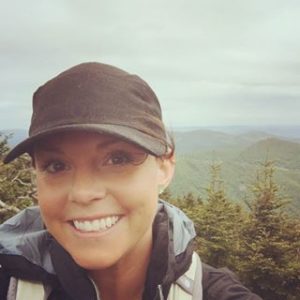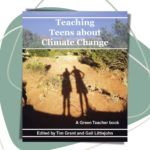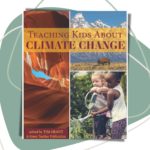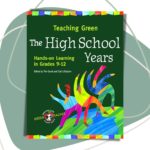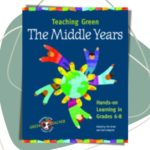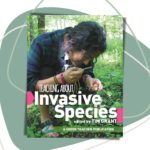Talking with Green Teachers — our podcast!
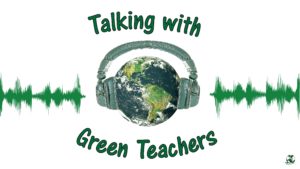
We are pleased to share with you our newest project: Talking with Green Teachers, a podcast featuring discussions with environmental educators from around the globe. In each interview-style episode, we hear the human side of EE, while discussing some of the big questions facing this diverse branch of education.
In our ongoing efforts to engage with people from as many different communities as possible, we will speak to guests whose views may variously differ from or align with yours. Green Teacher is an inclusive space and we welcome people from all backgrounds, perspectives, and faiths in a collective spirit of collaboration and exploration.
 or wherever you get your podcasts!
or wherever you get your podcasts!
With Kerry Crofton of Less Screen More Green and the Global Health Alliance
Why is it so challenging to find a healthy balance between digital time and outdoor time? How can educators address digital overload and excessive screen time? What role does mindfulness play in this discussion? Dr. Kerry Crofton walks us through research — including some from her team at the Global Health Alliance — and shares her experiences supporting educators in this timely exploration of the upsides and downsides of digital technology in learning settings. Digital tools have an important place in education, but knowing when and how to use them are key considerations for educators in the 21st century. (If you listen to the end, you’ll hear a reading of an original song written by Kerry!)
Guest:
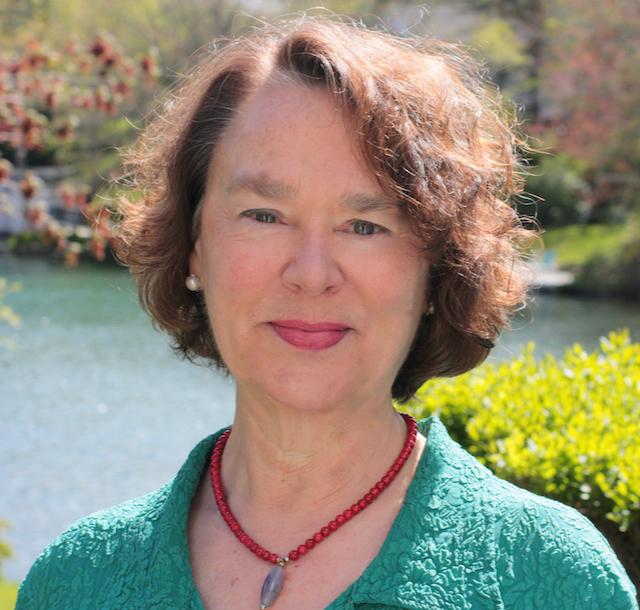 Kerry Crofton, PhD, is founder and director of the Canadian charity, Global Alliance for Brain & Heart Health (Global Health Alliance). Her international team of environmental health experts are dedicated to nurturing the physical and mental wellbeing of children, youth, and families in this digital age. Her 45 years of professional work includes developing and delivering wellness programs for teachers, parents, nurses, physicians, cardiac patients, air traffic controllers, commercial and fighter pilots, and others in high-stress occupations. She is the author of The Wellness Guide for the Digital Age as well as Less Screen More Green: The Mindful Tech Plan on the powers of nature, mindfulness, and being truly connected. Kerry is a nature-loving mother and grandmother, and once worked as a teacher. These days she offers Pro D Less Screen, More Green programs for other teachers, as well as The Mindful Tech Plan™, The Family Tech Plan™, and The School Tech Plan™.
Kerry Crofton, PhD, is founder and director of the Canadian charity, Global Alliance for Brain & Heart Health (Global Health Alliance). Her international team of environmental health experts are dedicated to nurturing the physical and mental wellbeing of children, youth, and families in this digital age. Her 45 years of professional work includes developing and delivering wellness programs for teachers, parents, nurses, physicians, cardiac patients, air traffic controllers, commercial and fighter pilots, and others in high-stress occupations. She is the author of The Wellness Guide for the Digital Age as well as Less Screen More Green: The Mindful Tech Plan on the powers of nature, mindfulness, and being truly connected. Kerry is a nature-loving mother and grandmother, and once worked as a teacher. These days she offers Pro D Less Screen, More Green programs for other teachers, as well as The Mindful Tech Plan™, The Family Tech Plan™, and The School Tech Plan™.
Waterfall sound effect by SoundsForYou from Pixabay
Episode 50: Navigating ecological threats with storytelling
With Chenoa Egawa and Keith Egawa of North Atlantic Books
What is the role of storytelling in today’s fast-paced, digital-heavy world? Why is tone so important when exploring ecological threats with young people? How can stories by adapted for older and younger audiences? Siblings Chenoa Egawa and Keith Egawa wrote and illustrated the book The Whale Child, which combines Pacific Northwest Indigenous teachings with hope, humour, and clear-eyed honesty about various ecological challenges facing the planet. They joined us to share their insights about storytelling as an educational tool as well how traditional knowledge has informed their work.
Guests (from www.northatlanticbooks.com):
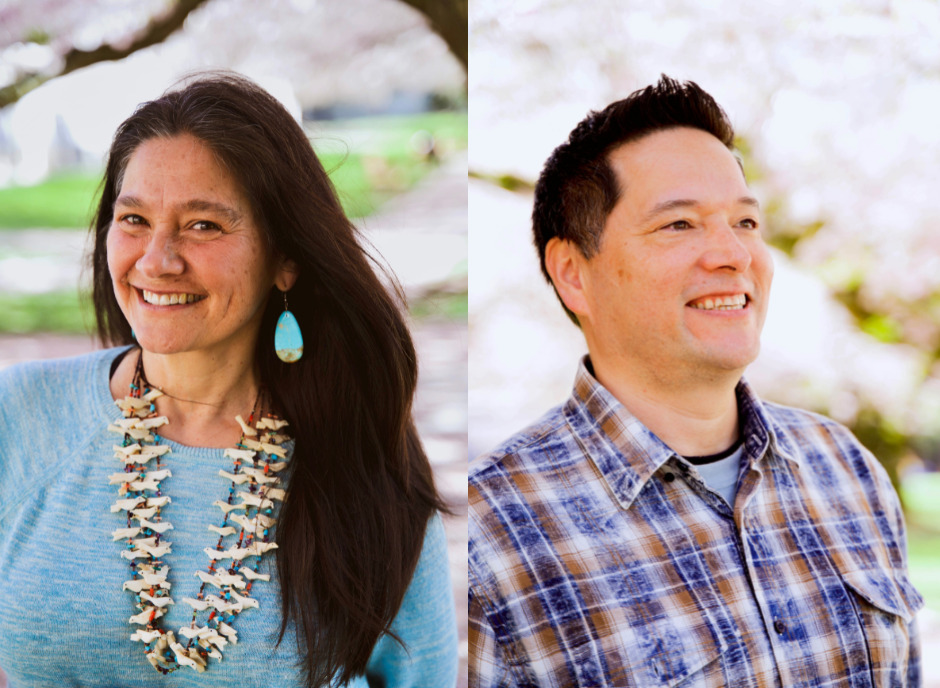 Chenoa Egawa is the owner of Swan Clan Productions. Egawa is a traditional Native singer, storyteller, ceremonial leader, and medicine carrier. She has served as a Lummi delegate and an interpreter in Central and South America and for the UN. She has also served as Indian Education liaison in public and tribal schools, promoting racial equity through art and education.
Chenoa Egawa is the owner of Swan Clan Productions. Egawa is a traditional Native singer, storyteller, ceremonial leader, and medicine carrier. She has served as a Lummi delegate and an interpreter in Central and South America and for the UN. She has also served as Indian Education liaison in public and tribal schools, promoting racial equity through art and education.
Keith Egawa is a graduate of the University of Washington’s Creative Writing program and author of the novel Madchild Running (Red Crane Books Inc. 1999). Egawa’s extensive work experience in the fields of Children and Family Services and Indian Education Reform has provided him with both inspiration and insight into his subject matter. Egawa has been awarded several artists grants, including the ARTs Up grant through the Seattle Arts Commission, which was used to conduct a series of writing workshops for Native youth in the Seattle area.
Episode 49: Comics, cartoons, and humour for climate change ed.
With Allan J. Hesse of AJH Comics & Cartoons
How can comics and cartoons be used in climate change education? In what ways can humour be used to lighten otherwise heavy subject matter? Why is it so important to be honest with young learners about difficult truths? Conservationist and cartoonist Alan Hesse has embarked on a quest to engage students with climate change through visual storytelling centred on his original creation Captain Polo — an intrepid Polar Bear who travels the world hearing stories from those most affected by climate change. A tremendous amount of research and thought has gone into this ever-expanding series of comics, and we were delighted that Alan joined us to share his insights about his journey so far.
Guest (adapted from https://alanhesse.com/about/):
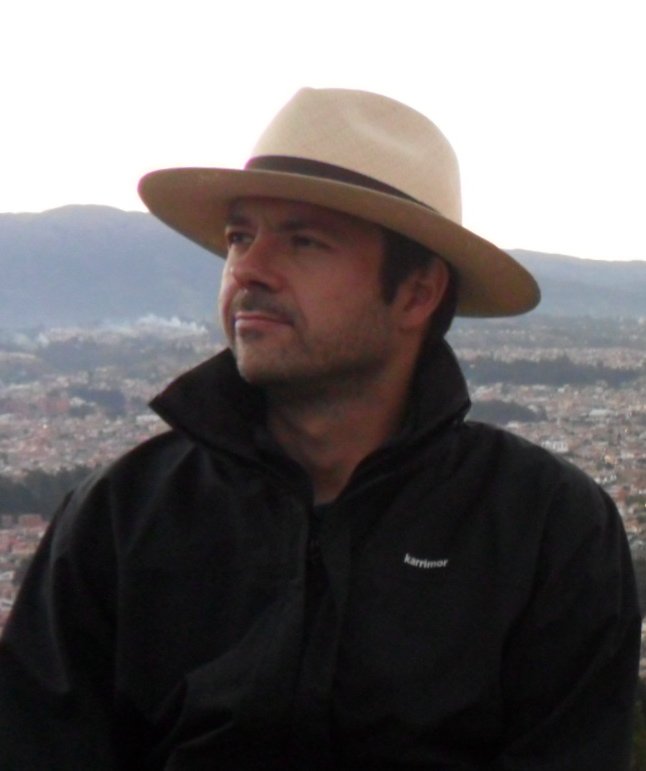 Born in Pakistan from Anglo-French parents, Alan J. Hesse practically grew up in a suitcase; his father’s international soil scientist career led him to all sorts of unusual places, some of them to live for a couple of years at a time. Alan can safely say he is a seasoned traveler. This has shaped his identity and has increased his understanding and respect for different cultures around the world. Alan loves to reflect this appreciation in his cartoons and comics. Since age 12 Alan knew he wanted to somehow be surrounded by wildlife and nature. He was able to fulfill this objective after helping to set up and join a university expedition to the Bolivian Amazon. What started out as a 3-month adventure turned into a 20-year residence. Alan currently lives in Ecuador, where he continues to develop the Captain Polo book series while deepening a newfound vocation for climate education.
Born in Pakistan from Anglo-French parents, Alan J. Hesse practically grew up in a suitcase; his father’s international soil scientist career led him to all sorts of unusual places, some of them to live for a couple of years at a time. Alan can safely say he is a seasoned traveler. This has shaped his identity and has increased his understanding and respect for different cultures around the world. Alan loves to reflect this appreciation in his cartoons and comics. Since age 12 Alan knew he wanted to somehow be surrounded by wildlife and nature. He was able to fulfill this objective after helping to set up and join a university expedition to the Bolivian Amazon. What started out as a 3-month adventure turned into a 20-year residence. Alan currently lives in Ecuador, where he continues to develop the Captain Polo book series while deepening a newfound vocation for climate education.
Episode 48: What we can learn from trees
With Ian Allan of the Blue Mountains Botanic Garden Mount Tomah
What are some common misconceptions about trees? How can we foster meaningful experiences with them? In which situations does anthropomorphizing work and not work? Arborist Ian Allan spends most of his time among trees in the 200 hectares of the Greater Blue Mountains World Heritage Wilderness Area that he manages in New South Wales, Australia. He has amassed a treasure trove of stories and insights about the woody giants that surround us and provide so many ecosystems services. Ian joined us to discuss how to connect trees with people — both the initiated and the uninitiated. He also shared some details about a new project being conducted in partnership with a local First Nation.
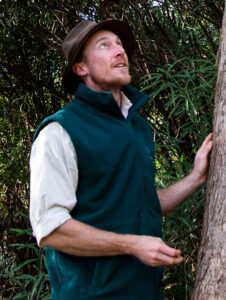 Guest:
Guest:
Ian Allan achieved his dream in 2016 by becoming the Supervisor of Natural Areas, Arboriculture, and Open Space at the Blue Mountains Botanic Garden Mount Tomah. With over 20 years of experience, he now looks after one of the best cool climate tree collections in Australia, manages hundreds of hectares of World Heritage quality wilderness, helps present incredible lawns and gardens whilst conserving vulnerable species like the Wollemi Pine (Wollemia nobilis) and Dwarf Mountain Pine (Pherosphaera fitzgeraldii). He still remembers planting his first tree on Arbor Day as part of Australia’s bicentennial celebrations. The joy he felt at watching the tree grow, and his curious pondering over its blue-grey compound leaves, would lead him into a lifelong love of the natural world and plants.
Episode 47: Climate literacy and resilience
With Andra Yeghoian of Ten Strands and the California Environmental Literacy Initiative
What does a trauma-informed classroom look like? How does trauma relate the climate crisis? Why is it important to implement a solutions-based approach to teaching climate change? Andra Yeghoian takes us on a deep dive of her work, including the 4-Cs framework (campus, curriculum, community, and culture) and the HEARTS framework, while also sharing examples activities and learning sessions that incorporate a trauma-informed approach. Environmental crises can be overwhelming, yet we can help students manage them by facing the various challenge head-on (in a developmentally appropriate way) and empowering students to take action.
Guest (from https://tenstrands.org/about/team/):
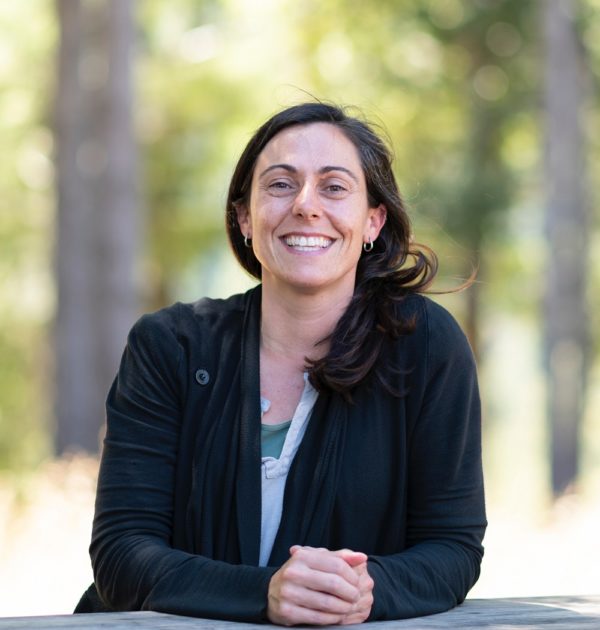 Andra Yeghoian brings more than 15 years of experience in education across public and private school systems, nationally and internationally. She currently provides visionary leadership for a California-wide whole systems approach to integrating environmental and climate literacy, and sustainable and climate resilient school efforts, across a school community’s campus, curriculum, community, and culture. Andra is also the California Environmental Literacy Initiative Project Director. She holds a B.A. and education credentials from UC Davis, and an MBA from Presidio Graduate School. Under her leadership, she has supported school sites, districts, and county offices in achieving honors such as the U.S. Department of Education and California Green Ribbon Award, Bay Area Green Business Certification, and LEED Platinum Certification for New Buildings.
Andra Yeghoian brings more than 15 years of experience in education across public and private school systems, nationally and internationally. She currently provides visionary leadership for a California-wide whole systems approach to integrating environmental and climate literacy, and sustainable and climate resilient school efforts, across a school community’s campus, curriculum, community, and culture. Andra is also the California Environmental Literacy Initiative Project Director. She holds a B.A. and education credentials from UC Davis, and an MBA from Presidio Graduate School. Under her leadership, she has supported school sites, districts, and county offices in achieving honors such as the U.S. Department of Education and California Green Ribbon Award, Bay Area Green Business Certification, and LEED Platinum Certification for New Buildings.
Environmental and Climate Aligned Trauma Informed Practices for Educators and Schools: https://docs.google.com/document/d/1-ar77-Eo7SnLVIh35C4cBzG_pAw6kinklkU9_tnju30/edit
Solutionary and Environmental Books Examples: https://docs.google.com/document/d/1tsHXi90hCEwnTW3zwC1y71KNCFYk5cdRmGj7yy-cxUU/edit
Environmental and Climate Responsive Crosswalk for Trauma Informed Schools: https://docs.google.com/document/d/18Ja-cp1kWOOvhyKhEliAePLX6l40hBJp8kUbhyzTB5Q/edit
4Cs Sustainable and Climate-Resilient Schools Framework: https://sites.google.com/view/scrs-center/vision-and-framework/4cs-framework
*Episode edited by M. Angel Goñi Avila
Episode 46: Attention restoration theory
With Ernesto Rodriguez of Nature in the Classroom
What is Attention Restoration Theory? Why do fractals in nature calm us and improve our focus? How can educators incorporate images of nature into lessons? Nature in the Classroom (NitC) installs crystal-clear images of trees (often with the sun peeking through the branches) on classroom ceilings, much to the benefit of educators and learners. NitC’s Founder and Executive Director Ernesto Rodriguez joined us to unpack the reams of research in medicine that support the use of natural images for improving mental health, while explaining the exciting research NitC is about to undertake with Dr. Richard Taylor from the University of Oregon. Ernesto also shared multiple anecdotes about the effectiveness of showing nature images to learners and those recovering from illnesses.
Guest (from www.natureintheclassroom.org):
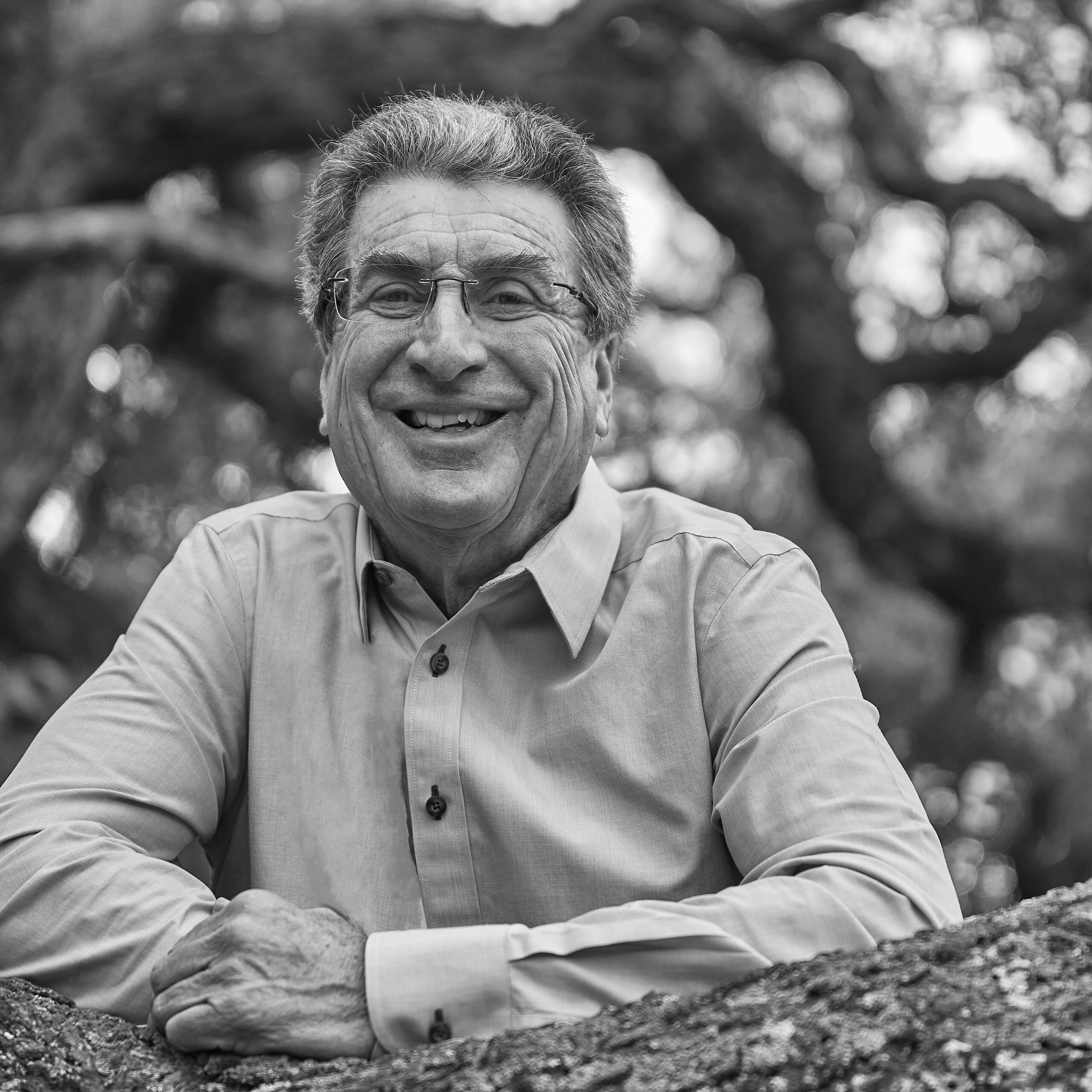 Retired educator and school psychologist, Ernesto Rodriguez provided psychological services for US State Department Schools in Colombia and Saudi Arabia. He founded Ernesto Rodriguez Photography in 1988, commercial and fine art photography. His work is in the Curator’s Collection at MoMA, New York and on exhibit in the Smithsonian. In 2002 Ernesto founded Sereneview®, to bring the science of viewing calming nature landscapes to the hospital patient bedside. Sereneview® curtains are installed in over 3,000 hospitals in the US, Europe, and Australia. He is the Founder and Executive Director of Nature In The Classroom®, a non-profit that applies nature art and science to create classroom environments that support teachers and students academically and emotionally.
Retired educator and school psychologist, Ernesto Rodriguez provided psychological services for US State Department Schools in Colombia and Saudi Arabia. He founded Ernesto Rodriguez Photography in 1988, commercial and fine art photography. His work is in the Curator’s Collection at MoMA, New York and on exhibit in the Smithsonian. In 2002 Ernesto founded Sereneview®, to bring the science of viewing calming nature landscapes to the hospital patient bedside. Sereneview® curtains are installed in over 3,000 hospitals in the US, Europe, and Australia. He is the Founder and Executive Director of Nature In The Classroom®, a non-profit that applies nature art and science to create classroom environments that support teachers and students academically and emotionally.
*Episode edited by M. Angel Goñi Avila
Episode 45: World Rivers Day
With Mark Angelo of World Rivers Day
When did World Rivers Day begin? How can educators get involved in it? What inspired the children’s book The Little Creek That Could? In what ways do rivers and streams benefit ecosystems, humans, and other life forms? Children’s author and World Rivers Day founder Mark Angelo discusses the value of rivers and streams, the threats they face, what educators can do to mark World Rivers Day, and how communities of learners and educators can collaborate at any scale on river/stream explorations and clean-ups. There’s also talk of trout, salmon, and water striders…
Guest (from https://www.thelittlecreekthatcould.com/):
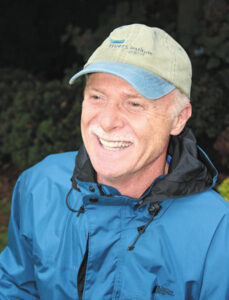 Mark Angelo is a globally renowned river conservationist, speaker, teacher, writer, and paddler. He is the Chair and founder of World Rivers Day, now celebrated by millions of people in close to 100 countries. Among his many accolades, he is a recipient of the Order of Canada for his efforts to protect and restore rivers both locally and around the world. Mark has paddled more than 1000 rivers in over 100 countries and his work has been the subject of several feature films. He has led numerous river and stream restoration efforts, including those along Guichon Creek, “the little creek that could.” Mark resides in Burnaby, British Columbia, Canada, where he continues to mentor conservation groups and young people with an interest in water-related issues.
Mark Angelo is a globally renowned river conservationist, speaker, teacher, writer, and paddler. He is the Chair and founder of World Rivers Day, now celebrated by millions of people in close to 100 countries. Among his many accolades, he is a recipient of the Order of Canada for his efforts to protect and restore rivers both locally and around the world. Mark has paddled more than 1000 rivers in over 100 countries and his work has been the subject of several feature films. He has led numerous river and stream restoration efforts, including those along Guichon Creek, “the little creek that could.” Mark resides in Burnaby, British Columbia, Canada, where he continues to mentor conservation groups and young people with an interest in water-related issues.
Copies of The Little Creek That Could can be ordered from https://www.thelittlecreekthatcould.com/.
*Episode edited by M. Angel Goñi Avila
Episode 44: Phenology-based teaching
With Larry Weber of Kollath-Stensaas Publishing
What is phenology? How does phenology-based teaching work? How does it compare to textbook-based teaching? Naturalist, author, and retired teacher Larry Weber used a phenological approach to teaching for over 25 years with his middle school students, and it opened up endless opportunities for learning and growth. While he adhered less to state standards, Larry was able to help his students foster life skills, much to their benefit. Larry joined us to talk phenology-based teaching and share his insights about spiders and their webs.
Guest:
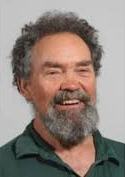 Larry Weber is a retired teacher of 40 years in middle and high school. For 25, he taught a phenology-based science class. This award-winning class was highly successful. Upon retirement, he became a speaker at teacher conferences and taught University for Seniors, Minnesota Master Naturalists, and Road Scholars. He has written more than 15 books. These are about wildlife of the North Woods — Spiders, Butterflies, Fungi — and other phenology topics: Minnesota Phenology, Webwood, and In a Patch of Goldenrods. He lives on a “forested former farm” in Carlton County, Minnesota, USA where he watches critters and the seasons.
Larry Weber is a retired teacher of 40 years in middle and high school. For 25, he taught a phenology-based science class. This award-winning class was highly successful. Upon retirement, he became a speaker at teacher conferences and taught University for Seniors, Minnesota Master Naturalists, and Road Scholars. He has written more than 15 books. These are about wildlife of the North Woods — Spiders, Butterflies, Fungi — and other phenology topics: Minnesota Phenology, Webwood, and In a Patch of Goldenrods. He lives on a “forested former farm” in Carlton County, Minnesota, USA where he watches critters and the seasons.
*To purchase some of Larry’s books, visit https://www.kollathstensaas.com/.
*Episode edited by M. Angel Goñi Avila
Episode 43: Regenerative education, incl. learning session
With Annie Roth of the Great Smoky Mountains Institute at Tremont
What is a RELC? How can schoolyards be used in place-based learning? Why is it sometimes important for educators to become co-learners with their students? In this episode, we first hear about Tremont’s RELC as well as the Institute’s approach to supporting learners (educators included) before partaking in a virtual learning session that includes a grounding exercise and an activity called My New Best Friend. We also get into regenerative education: what it is and how it manifests.
Guest:
Annie Roth has been called to connect with the land since she was young. Growing up in Michigan, she trounced in the Little Manistee River finding frogs, getting messy, and always wondering. Her curiosity led her to pursue a career in education, sharing in the wonders of the world around her with others. After college, life brought her to Nashville where she worked within project-based learning schools and earned her M.Ed. in Curriculum and Instruction. She is excited to now bridge her two loves — teaching and the outdoors — working to connect people with nature alongside the Tremont team. In her spare time, you can find Annie obsessing over a newly found fungi, hiking in the backcountry with her husband and their pup, Maple, or enjoying the water by kayak or paddle board.
*Natural sounds recorded by Tara Shumate
*Episode edited by M. Angel Goñi Avila
Episode 42: Food forest gardening
With Wendy Nadherny Fachon of Story Walking Radio Hour
What is food forest gardening? How can educators leverage it for impactful learning? What does corporative learning have to do with this? Wendy Fachon has her own food forest garden, and she sees great potential for food forest gardening in environmental education. She also shares her insights about nature drawing as a powerful pedagogical tool and tells a story about a serendipitous discovery of Red Mulberry trees.
Guest:
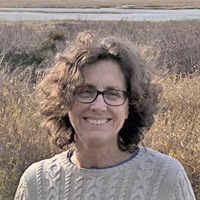 Wendy Nadherny Fachon hosts the Story Walking Radio Hour, which focuses on environmental education and sustainable living content. She is Rhode Island’s regional editor for Green Teacher and writes articles for Natural Awakenings Magazine‘s Boston edition and D7RN’s Sustainable Living News. Wendy is also an Abundance Ambassador for Food Forest Abundance. As an environmental educator, she currently develops and teaches Nature Drawing curriculum for The Empowerment Factory, based in Pawtucket, RI. She is solutions-oriented, which requires acknowledging the problems, understanding the underlying causes, and identifying solutions that are based on sound science. Access her podcasts at www.storywalking.com.
Wendy Nadherny Fachon hosts the Story Walking Radio Hour, which focuses on environmental education and sustainable living content. She is Rhode Island’s regional editor for Green Teacher and writes articles for Natural Awakenings Magazine‘s Boston edition and D7RN’s Sustainable Living News. Wendy is also an Abundance Ambassador for Food Forest Abundance. As an environmental educator, she currently develops and teaches Nature Drawing curriculum for The Empowerment Factory, based in Pawtucket, RI. She is solutions-oriented, which requires acknowledging the problems, understanding the underlying causes, and identifying solutions that are based on sound science. Access her podcasts at www.storywalking.com.
*Episode edited by M. Angel Goñi Avila
Episode 41: Farm to school
With Jen Cirillo and Betsy Rosenbluth of Shelburne Farms
What is farm to school? Are there any common misconceptions about it? Why is farm to school such an essential part of the educational journey? In this lively discussion, Jen and Betsy walk us through the three Cs of farm to school, how educators can better incorporate it into their teaching (without taking up too much extra time!), the core values underlying the practice, and the ways our current food system reinforces injustice and inequity. There’s also talk of salamanders, overcoming barriers, forging meaningful relationships, and the importance of throwing a party! (A bad plant pun might have found its way into the mix, too…)
Guests:
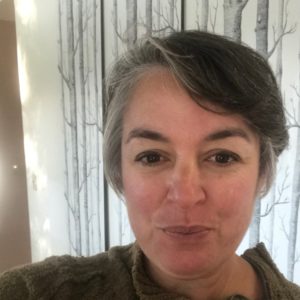 Jen Cirillo serves as Director of Professional Learning at Shelburne Farms. She brings 20 years of experience in Education for Sustainability (EFS) from co-developing and teaching a teen program integrating art, science, and sustainability to her most recent work leading professional learning programs around the world. Jen has a strong background in standards-based curriculum development, facilitation, and evaluation, plus a wealth of experience engaging schools and communities in creating a vision for a just and healthy future. Jen holds a B.S. from the University of Vermont and an M.S. from the Audubon Expedition Institute/Lesley University.
Jen Cirillo serves as Director of Professional Learning at Shelburne Farms. She brings 20 years of experience in Education for Sustainability (EFS) from co-developing and teaching a teen program integrating art, science, and sustainability to her most recent work leading professional learning programs around the world. Jen has a strong background in standards-based curriculum development, facilitation, and evaluation, plus a wealth of experience engaging schools and communities in creating a vision for a just and healthy future. Jen holds a B.S. from the University of Vermont and an M.S. from the Audubon Expedition Institute/Lesley University.
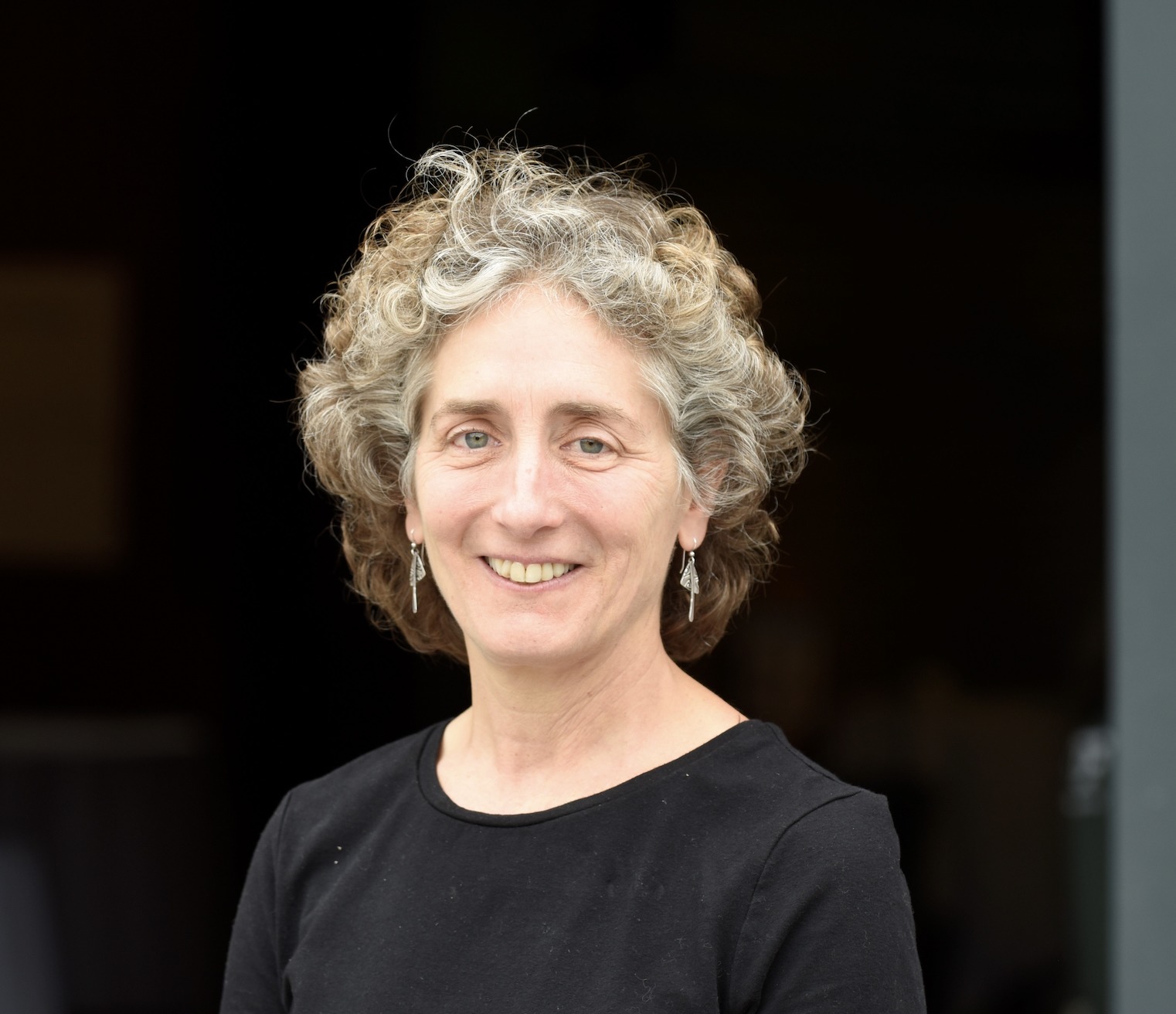 Betsy Rosenbluth is Project Director of Vermont FEED, a nationally recognized farm-to-school partnership program of the Northeast Organic Farming Association of Vermont and Shelburne Farms. Betsy also helped to establish the Burlington School Food Project and Education for Sustainability programs in Burlington schools. Prior to joining Shelburne Farms, Betsy was Director of Projects at the Orton Family Foundation.
Betsy Rosenbluth is Project Director of Vermont FEED, a nationally recognized farm-to-school partnership program of the Northeast Organic Farming Association of Vermont and Shelburne Farms. Betsy also helped to establish the Burlington School Food Project and Education for Sustainability programs in Burlington schools. Prior to joining Shelburne Farms, Betsy was Director of Projects at the Orton Family Foundation.
*Episode edited by M. Angel Goñi Avila
Episode 40: Placed-based education and life cycles
With Todd Ormiston of North Country School and Camp Treetops
How do students benefit from place-based learning? In what ways does it foster ruggedness, resourcefulness, and resilience? Why is it helpful for adolescents to bear witness to life cycles of fellow living things? While many educators and learners in public education systems are constrained by standardized tests and fixed learning outcomes, those at the North Country School in Lake Placid, New York, USA, have the freedom to adjust their teaching and learning journeys as they evolve. Todd Ormiston discusses the inner working of the North Country School, including high-impact experiences like their farm-to-school program.
Guest:
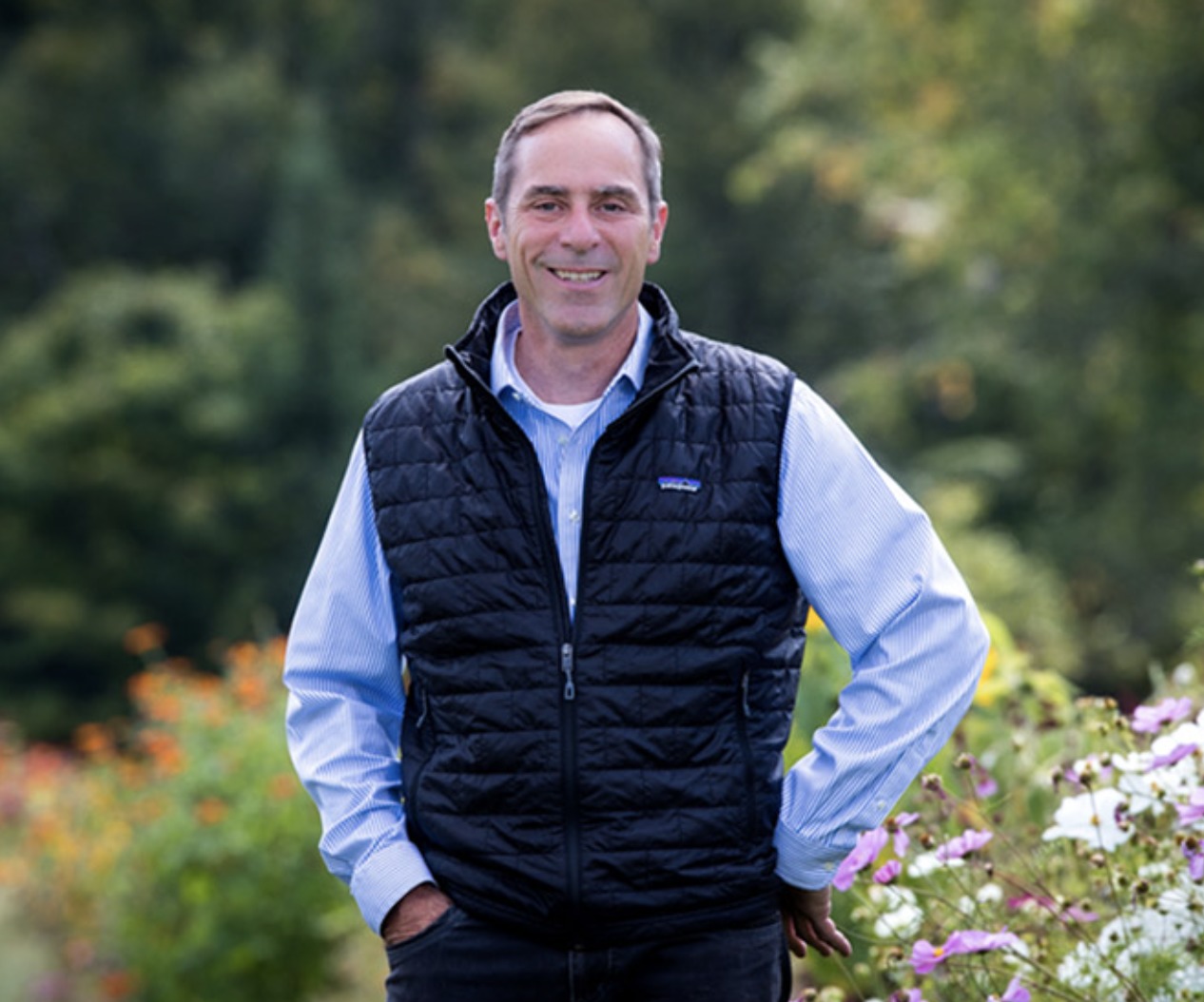 Todd Ormiston’s 20+ year career in independent schools is marked by a commitment to exceptional programming. Having held a variety of roles from educator to head of school at numerous institutions including Vermont Academy, Stratton Mountain School, Gould Academy, Mount Snow Academy, and Sun Valley Community School, Todd is committed to an experiential learning approach, diversity and inclusion, the power of community in shaping the lives of children, and the essential benefits of outdoor education and recreation. Todd holds a B.A. from St. Lawrence University and an M.Ed. from the University of Vermont. He, his wife Elizabeth, and daughters Maddox and Chase are outdoor enthusiasts who love the Adirondacks.
Todd Ormiston’s 20+ year career in independent schools is marked by a commitment to exceptional programming. Having held a variety of roles from educator to head of school at numerous institutions including Vermont Academy, Stratton Mountain School, Gould Academy, Mount Snow Academy, and Sun Valley Community School, Todd is committed to an experiential learning approach, diversity and inclusion, the power of community in shaping the lives of children, and the essential benefits of outdoor education and recreation. Todd holds a B.A. from St. Lawrence University and an M.Ed. from the University of Vermont. He, his wife Elizabeth, and daughters Maddox and Chase are outdoor enthusiasts who love the Adirondacks.
*Episode edited by M. Angel Goñi Avila
Episode 39: Managing eco-anxiety and ecological grief
With Day Sanchez of 2e Minds
How do eco-anxiety and ecological grief differ? What can educators do to address them with their learners? Why is solarpunk such an effective counter-narrative? Day Sanchez does extensive work in the realm of eco-emotions, so she has many important insights about how to navigate these often-turbulent waters. We know that doom-and-gloom framing leads to apathy in most people, and though it is essential to tell the truth, we must balance difficult truths with active hope grounded in realistic alternatives for the near and far future. This is where solarpunk comes into play.
Guest:
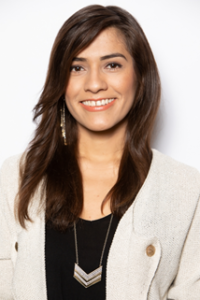
Day Sanchez is a School Psychologist, Emotional Intelligence (EQ) coach, and the founder of 2e Minds. She is dedicated to supporting the emotional, creative, and mental health of neurodivergent and Highly Sensitive children and youth. Day has over a decade of experience working with hundreds of children struggling with learning, psychological, and social-emotional challenges. She provides psycho-education on eco-emotions and helps families build inner resources, resilience, and tools to create active hope and agency. Day gives workshops on how to talk to children about the ecological crisis and offers individual and group support to children and young adults experiencing eco-anxiety.
Episode 38: Gamification for EE
With Jane Ji of Springbay Studio and Grace Sadler of the Science Teachers’ Association of Ontario
How can gamification be used to connect young learners with nature? In what ways do the virtual world and real world overlap? Why is competition such an impactful tool in education? What does this all have to do with managing eco-anxiety? Jane Ji of Springbay discusses the conceptual underpinnings of her iBiome and League for Green Leaders before teacher Grace Sadler shares her and her students’ experiences with Springbay’s apps. The key is using virtual games as a bridge to the natural world, not a replacement for direct contact with it. There’s lots to unpack and we do our best in the two discussions featured in this episode.
Guests:
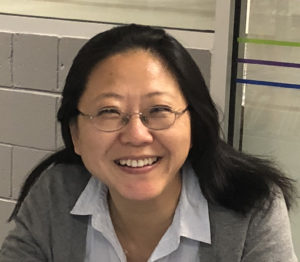 Jane Ji is an educational game designer, naturalist, and facilitator for learning-by-doing through play. As a co-founder of Springbay Studio, she works with her team, focusing exclusively on climate education. She has created the award-winning educational game series iBiome and League for Green Leaders, the latter a one-of-its-kind online climate action platform for children around the world to compete to reduce their carbon footprints. Jane invites children to build virtual habitats, learn about how humans impact the environment, and empowers them to reduce their eco-footprint by making sustainable real-life choices. She delivers state-wide PD for teachers in Washington State and supports teachers from Toronto
Jane Ji is an educational game designer, naturalist, and facilitator for learning-by-doing through play. As a co-founder of Springbay Studio, she works with her team, focusing exclusively on climate education. She has created the award-winning educational game series iBiome and League for Green Leaders, the latter a one-of-its-kind online climate action platform for children around the world to compete to reduce their carbon footprints. Jane invites children to build virtual habitats, learn about how humans impact the environment, and empowers them to reduce their eco-footprint by making sustainable real-life choices. She delivers state-wide PD for teachers in Washington State and supports teachers from Toronto
District School Board and various parts of the US with workshops on adding engagement and empowerment to inquiry-based learning.
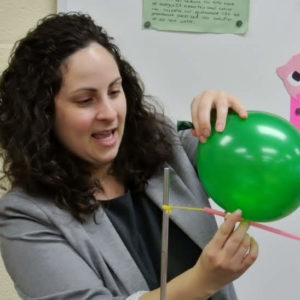
Graziella (Grace) Sadler has been teaching for 15 years, and this has included seven years in a primary/junior science and technology position. She is the Vice President of The Science Teachers’ Association of Ontario (STAO) and Judging Coordinator for the York Region Science and Technology Fair. She currently teaches Grade 10 Science with the Toronto Catholic District School Board at Monsignor Percy Johnson Catholic Secondary School.
Episode 37: Student-powered learning and mentorship
With Jane Hiller of the Environmental Education Association of South Carolina and South Carolina Green Step Schools
What is student-powered learning? Why is it so impactful? In what ways can mentorship be most effective? How can mentors help teach in-service teachers? What is the key to sustaining environmental projects year after year? The Green Step Schools program in South Carolina, USA has been running for almost two decades, allowing students and teachers to experience such projects as vermicomposting, math gardens, and bluebird trail monitoring. The program’s coordinator Jane Hiller joined us to share her insights, while sharing stories of some of the most innovative green projects happening in the realms of conservation, protection, and restoration.
Guest:
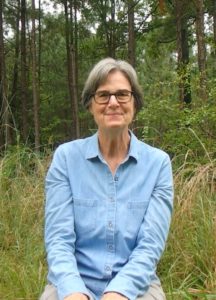 Jane Hiller is the coordinator of SC Green Steps Schools, a program designed to help South Carolina schools earn awards for establishing sustainability projects where students learn, do, and teach others. A former classroom teacher, Hiller understands the challenges teachers face as they seek to provide meaningful learning experiences about environmental stewardship within their schools. She recently retired as education director for Sonoco Recycling, where she was responsible for educating local governments, agencies, businesses, non-profit organizations, schools, and citizens about the importance of waste reduction, resource conservation, reuse, and recycling. She is a recipient of South Carolina’s Environmental Awareness Award, an honor established by South Carolina’s General Assembly to recognize outstanding contributions to the protection, conservation, and improvement of the state’s natural resources. Hiller currently serves as a board member and central section director for the Environmental Education Association of South Carolina.
Jane Hiller is the coordinator of SC Green Steps Schools, a program designed to help South Carolina schools earn awards for establishing sustainability projects where students learn, do, and teach others. A former classroom teacher, Hiller understands the challenges teachers face as they seek to provide meaningful learning experiences about environmental stewardship within their schools. She recently retired as education director for Sonoco Recycling, where she was responsible for educating local governments, agencies, businesses, non-profit organizations, schools, and citizens about the importance of waste reduction, resource conservation, reuse, and recycling. She is a recipient of South Carolina’s Environmental Awareness Award, an honor established by South Carolina’s General Assembly to recognize outstanding contributions to the protection, conservation, and improvement of the state’s natural resources. Hiller currently serves as a board member and central section director for the Environmental Education Association of South Carolina.
Episode 36: Nature-based healing
With Susanne Heaton of Motivated By Nature
Why are an increasing number of doctors prescribing national park passes to patients? How does stress impact our bodies? What evidence supports the practice of forest bathing (shinrin-yoku)? Why is the “happy gardener” more than a stereotype? Drawing on copious amounts of sound research, Susanne Heaton discusses the healing benefits of direct, multi-sensory interactions with nature, while offering suggestions for how environmental educators can better connect their learners with the natural world. She also speaks to the importance of having an accountability partner during our individual journeys of nature-based healing.
Guest:
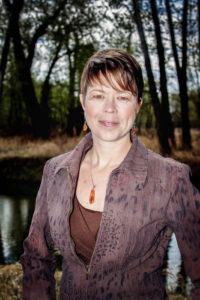 After having some life-changing wake-up calls, Susanne Heaton took the leap of faith from the corporate world to start her own business to help others live a healthier lifestyle. She uses science-backed research on natural modalities as well as the benefits of connecting with nature in her Monthly Online Wild About Nature Challenges, Inspirational Speaking, Workshops, and Award-Winning Children’s book. Susanne is Motivated by Nature: https://learning.motivatedbynature.com/.
After having some life-changing wake-up calls, Susanne Heaton took the leap of faith from the corporate world to start her own business to help others live a healthier lifestyle. She uses science-backed research on natural modalities as well as the benefits of connecting with nature in her Monthly Online Wild About Nature Challenges, Inspirational Speaking, Workshops, and Award-Winning Children’s book. Susanne is Motivated by Nature: https://learning.motivatedbynature.com/.
HEARTcare Educators: https://heartcareeducators.ca/
Episode 35: Watershed education
With David Ramsay of BC Tomorrow
What is watershed education? Why is it a critical component of place-based learning? How can we engage students of all ages in learning through a watershed lens? David Ramsay is well versed in using watersheds as an integrating context for learning, and he joined us to share both his tips for best practices as well as the ins and outs of BC Tomorrow’s new watershed simulator, with which students can look into the past, project the future, and take action. Water is a remarkable storyteller. All we have to do is listen to what it has to tell us.
Guest:
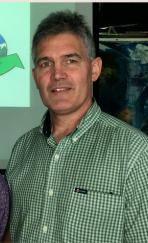 David Ramsay is an experienced educator in the province of BC. In 2014, while implementing watershed sustainability curricula, and alongside cofounder Barry Wilson, he began developing BC Tomorrow. With its cutting-edge technology and holistic approach, BC Tomorrow’s innovative learning tools provide opportunities to authentically investigate watershed sustainability. The student-centered, engaging platform connects learning to the students’ own world as they examine interconnections and consider some of the real-life trade-offs that go with making choices aimed at a sustainable future.
David Ramsay is an experienced educator in the province of BC. In 2014, while implementing watershed sustainability curricula, and alongside cofounder Barry Wilson, he began developing BC Tomorrow. With its cutting-edge technology and holistic approach, BC Tomorrow’s innovative learning tools provide opportunities to authentically investigate watershed sustainability. The student-centered, engaging platform connects learning to the students’ own world as they examine interconnections and consider some of the real-life trade-offs that go with making choices aimed at a sustainable future.
Episode 34: Inside New Jersey’s climate change ed. breakthrough
With Lauren Madden of The College of New Jersey
How did New Jersey become the first state in the US to include climate change standards across the K–12 spectrum? In what ways has teacher feedback contributed to this achievement? Why is community-based climate change education so critical? What are some high-impact individual actions and choices that can lead to systemic changes? How does this connect to systems thinking? Lauren Madden has been heavily involved with New Jersey’s innovative work on climate change education (CCed), and she shares her insights about the value of CCed, its contributions to decarbonization, and how other jurisdictions could replicate New Jersey’s success.
Guest:
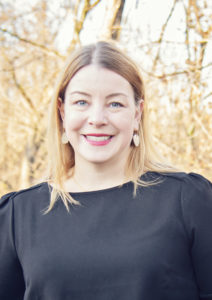 Lauren Madden, Ph.D. is a Professor of Elementary Science Education in the Department of Elementary and Early Childhood Education at The College of New Jersey, where she also coordinates the Environmental Sustainability Education minor for preservice teachers and graduate certificate in Environmental Sustainability Education for practicing teachers. Her research and teaching advocate for scientific literacy and the health of our planet. She is Green Teacher’s Regional Editor for New Jersey.
Lauren Madden, Ph.D. is a Professor of Elementary Science Education in the Department of Elementary and Early Childhood Education at The College of New Jersey, where she also coordinates the Environmental Sustainability Education minor for preservice teachers and graduate certificate in Environmental Sustainability Education for practicing teachers. Her research and teaching advocate for scientific literacy and the health of our planet. She is Green Teacher’s Regional Editor for New Jersey.
Episode 33: Unpacking environmental racism with Green Ummah
With Aadil Nathani of Green Ummah
Where can you find passages about respecting nature in the Quran? How does environmentalism fit into the Five Pillars of Islam? Why is it so important to focus on solutions to our various environmental challenges? Where does all of this fit into environmental education? Aadil Nathani, one of the co-founders of Green Ummah, joined us to discuss these questions, lead listeners through a sample lesson from the Green Ummah Curriculum on environmental racism, and share some tips for making Ramadan more green. Aadil also shared his insights on how Muslim and non-Muslim folks can collaborate on a shared vision toward a greener and more just present and future.
Guest (from greenummah.org):
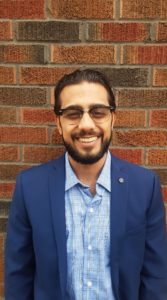 Aadil Nathani is a graduate of the University of Toronto (Hons. B.A.) and University of Windsor – Faculty of Law (J.D). He is currently working as a lawyer for the City of Windsor. While at Windsor Law, Aadil was involved in a collaborative project focused on municipal solutions to climate change. This experience encouraged Aadil to think about the urgent need to address climate change on different fronts, the responsibility that we each have to take care of the planet, and the deeply-rooted impacts of environmental racism. Aadil co-founded Green Ummah with the hope that it can serve as a conduit between the Muslim community and the environmental (and environmental justice) movements in Canada and beyond.
Aadil Nathani is a graduate of the University of Toronto (Hons. B.A.) and University of Windsor – Faculty of Law (J.D). He is currently working as a lawyer for the City of Windsor. While at Windsor Law, Aadil was involved in a collaborative project focused on municipal solutions to climate change. This experience encouraged Aadil to think about the urgent need to address climate change on different fronts, the responsibility that we each have to take care of the planet, and the deeply-rooted impacts of environmental racism. Aadil co-founded Green Ummah with the hope that it can serve as a conduit between the Muslim community and the environmental (and environmental justice) movements in Canada and beyond.
Green Ummah is a grassroots organization that seeks to create an environmental and environmental justice movement in the Canadian Muslim community. Our goal is to plant seeds for conversation about the responsibility of the Muslim community towards a healthy equitable planet. We aim to provide pathways for Muslims to integrate sustainable living into their daily lives, to educate Muslims regarding their role as Khalifa’s (stewards) of the planet, and to promote equitable access to nature spaces for Muslims.
Learn about the Green Ummah Curriculum at https://greenummah.org/green-ummah-curriculum/.
Episode 32: Teaching music and drama outside in all seasons (in Winnipeg)
With Jennifer Engbrecht of the Louis Riel School Division and Music Outside
What’s it like to teach music outside in the temperate zone through all seasons? How cold is too cold to learn outdoors? Can drama and movement support students’ learning of complex musical elements like meter, rhythm, and form? What opportunities do outdoor settings afford educators and learners? How does the Orff approach fit into all this? Grade 2–5 teacher Jennifer Engbrecht took her students outside for all but 11 days of the 2020-21 school year, enduring all that Winnipeg, Manitoba’s continental climate (with an annual temperature range of more than 80°C!) had to offer. This experience opened new doors for her and her students and led them to new creative heights. Hear Jennifer’s insights and her riveting story.
Guest:
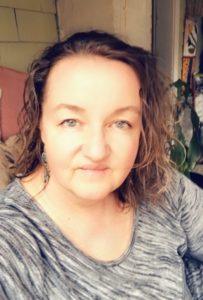 Jennifer Engbrecht is a music specialist in the Louis Riel School Division in Manitoba, Canada, with an emphasis on integrating the Orff approach to music education. She has a strong interest in the interrelationship of all subject areas, especially infusing the arts into all learning, and as their own stand-alone subjects. This year, learning outside became an option, and this has led to a transformation of her philosophy of learning in the arts. To learn more about her experiences with music outside this year, visit https://engbrecht.weebly.com/music-outside.
Jennifer Engbrecht is a music specialist in the Louis Riel School Division in Manitoba, Canada, with an emphasis on integrating the Orff approach to music education. She has a strong interest in the interrelationship of all subject areas, especially infusing the arts into all learning, and as their own stand-alone subjects. This year, learning outside became an option, and this has led to a transformation of her philosophy of learning in the arts. To learn more about her experiences with music outside this year, visit https://engbrecht.weebly.com/music-outside.
Referenced resources:
Singer/Songwriter Raine Hamilton: rainehamilton.com
Drama Menu: https://www.youtube.com/c/DramaMenu/videos (and the book: http://dramamenu.com/)
ActionPak Dance Resource: http://www.actionpakdanceresource.com/
Brooklands School and their outdoor learning each spring, Vimeo: https://vimeo.com/331728387
Manitoba Arts Curricula (on a butterfly): https://www.edu.gov.mb.ca/k12/cur/arts/index.html
(Description of the “butterfly”: https://www.edu.gov.mb.ca/k12/cur/arts/music/butterfly.html)
Nathan Chan and his “character study” of what The Swan by Camille St. Saëns should sound like…
https://www.youtube.com/watch?v=kNLC8ROAXjI (“Lots of people say that I express the music really well, and everyone thinks that’s the best part of me.”)
Soundtrap for Education. Interactive, collaborative music creation: Soundtrap.com
Winnipeg Symphony Orchestra, Education: https://wso.ca/education/digital-learning-hub/
Episode 31: Equity in environmental education
With Sylvia Hadnot and Derek Hoshiko of E3 Washington
How can we make environmental education a more equitable space? To what extent is citing limited resources a lack of creative, inclusive thinking? What is tokenism and how can it be avoided? Which narratives about equity are both inaccurate and counter productive? Sylvia Hadnot and Derek Hoshiko are the co-chairs of E3 Washington — the Washington state affiliate of the North American Association of Environmental Education — and they have been at the leading edge of some innovative work on equity and inclusion. Just as permaculture farming is more resilient and sustainable than monoculture farming, so is a diverse community that includes all voices and the unique perspectives they bring.
Guests:
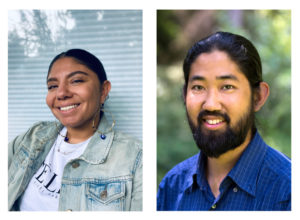 Sylvia Hadnot is a Seattle-based multicultural educator, artist, and systems thinker. With several years of educating, entrepreneurial, and artistic experience — from working with students in the King County Youth Detention Center to coaching soon-to-be teachers in anti-racist curriculum design to launching her own benefit events company at age 22 — Sylvia brings real-world knowledge and experience into her work supporting leaders with creating and maintaining the systems they need to build more liberated, powerful, sustainable, and agent individuals and communities. Born and raised in Seattle, Washington, Sylvia grew up in the Beacon Hill and Shoreline neighborhoods. She now lives on Lake Union with her black cat, Jabari. You can learn more about Sylvia and her work at www.haseverything.co and contact her with any inquiries for projects or collaborations at sylvia@haseverything.co.
Sylvia Hadnot is a Seattle-based multicultural educator, artist, and systems thinker. With several years of educating, entrepreneurial, and artistic experience — from working with students in the King County Youth Detention Center to coaching soon-to-be teachers in anti-racist curriculum design to launching her own benefit events company at age 22 — Sylvia brings real-world knowledge and experience into her work supporting leaders with creating and maintaining the systems they need to build more liberated, powerful, sustainable, and agent individuals and communities. Born and raised in Seattle, Washington, Sylvia grew up in the Beacon Hill and Shoreline neighborhoods. She now lives on Lake Union with her black cat, Jabari. You can learn more about Sylvia and her work at www.haseverything.co and contact her with any inquiries for projects or collaborations at sylvia@haseverything.co.
Derek Hoshiko is an organizer with For the People. For more the twenty years, Derek has managed groups of volunteers, activists, and entrepreneurs. In 2012, after witnessing continued inaction to stop global warming, he shifted his focus to climate action. In 2015, he journeyed over one thousand miles on a bicycle pilgrimage from Seattle to the tar sands to witness and learn about the suffering caused by fossil fuel extraction. He now heads Rapid and Just Climate Action, a project to stop global warming by 2030, and mentors Whidbey Island-wide youth climate justice coalition United Student Leaders. Derek serves on the boards of E3 Washington, the South Whidbey Schools Foundation, and Salish Sea Cooperative Finance. He has worked for change at many organizations such as Greenpeace USA, Climate Solutions, Cascadia Climate Collaborative, YES! Magazine, Seattle Good Business Network, and Web Collective, among others.
Episode 30: Gen Zs talk climate change, sustainability, and reciprocity in education
With Patricia Sung and Alexander Dickson of McGill University and Mihskakwan James Harper of NRStor Inc.
At what age did you first learn about climate change? How was it framed? Was there much talk of solutions? What is the true meaning of the word “sustainability”? How can it be more intricately woven throughout elementary and secondary education? When it comes to reciprocity, which books could be mandatory reading in certain university courses? Each member of our latest Gen-Z panel shares their experiences with environmental education before offering advice for improving it at all ages and across multiple subject areas. Though the ideas shared here do not necessarily represent the collective voice of a generation, it’s important to hear the stories and insights from those on the cusp of the workforce.
Guests:
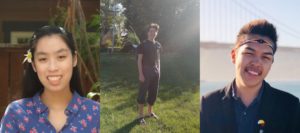 Patricia Sung moved from Hawaii to Montreal in 2018 to pursue a Bachelors of Science in Honours Environment with a minor in GIS & Remote Sensing at McGill University. Eager to become a better caretaker of the Earth, she co-founded the Macdonald Campus Pollination Meadow in 2021 to increase local biodiversity of native wildlife species. For her honours thesis (in the Cardille Computational Landscape Ecology Laboratory), she is researching how satellite imagery can be used to better detect beaver dams in Northern Quebec (as part of a collaboration with Nunavik Geomatics and the Northern Wildlife Ecology Lab).
Patricia Sung moved from Hawaii to Montreal in 2018 to pursue a Bachelors of Science in Honours Environment with a minor in GIS & Remote Sensing at McGill University. Eager to become a better caretaker of the Earth, she co-founded the Macdonald Campus Pollination Meadow in 2021 to increase local biodiversity of native wildlife species. For her honours thesis (in the Cardille Computational Landscape Ecology Laboratory), she is researching how satellite imagery can be used to better detect beaver dams in Northern Quebec (as part of a collaboration with Nunavik Geomatics and the Northern Wildlife Ecology Lab).
Alexander Kuijper Dickson is currently working towards completing his Bachelors in Bioresource Engineering and Agronomy, with a minor in entrepreneurship. His interests lie at the intersection of regenerative agriculture, ecology, and food security. He is currently leading a project to convert half an acre of lawn into a tall grass meadow to support native pollinators.
Mihskakwan James Harper is from Sturgeon Lake Cree Nation in Treaty 8, Alberta. He graduated from the University of Manitoba with a Bachelors of Science in Mechanical Engineering and holds a Masters of Science in Renewable Energy from KTH Royal Institute of Technology and École Polytechnique. He continues to advocate for meaningful climate action through the lens of his Niheyaw upbringing, tying concepts like clean energy with long-term community well-being, sovereignty, and empowerment. He currently works full time as the Business Development Manager with an energy storage developer, NRStor Inc. He loves his family and his community now and generations ahead, which inspires him to work on energy storage and renewable energy projects to build a future that is sustainable and empowers all.
Episode 29: Biomimicry: Taking design lessons from nature
With Rosanna Ayers of The Biomimicry Institute
When facing a design challenge, ask yourself, what would nature do? Or rather, what does nature do? How can the “three seeds of biomimicry” be applied to human design? Where does regeneration fit into this framework? How can we learn more from Mother Nature? This is where educators can play an important role in learners’ development. Learners bring a lot of cultural knowledge to the design process, too. It’s just a matter of unleashing it! In this discussion with TBI’s Director of Youth Education, Rosanna Ayers, join us in exploring the intricacies of biomimetic design and what educators can do to open students’ eyes to the wisdom of nature.
*For tips on keeping both birds and cats safe, visit https://abcbirds.org/
Guest:
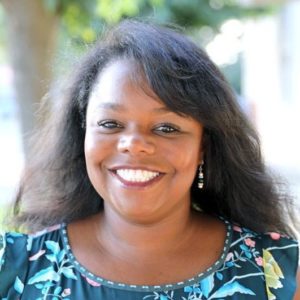 Rosanna Ayers has a Bachelor of Science in International Business, a Multiple Subject Teaching Credential, an Administrative Service Credential, and a Master of Education in Leadership and School Development, with an emphasis on Next Generation Science Standards. She teaches graduate-level integrated science courses for teacher candidates at a university and lives in the countryside with her husband and children. Rosanna is the Director of Youth Education at the Biomimicry Institute where she directs the Youth Design Challenge and other educational programs in support of increasing the scope of biomimicry in education.
Rosanna Ayers has a Bachelor of Science in International Business, a Multiple Subject Teaching Credential, an Administrative Service Credential, and a Master of Education in Leadership and School Development, with an emphasis on Next Generation Science Standards. She teaches graduate-level integrated science courses for teacher candidates at a university and lives in the countryside with her husband and children. Rosanna is the Director of Youth Education at the Biomimicry Institute where she directs the Youth Design Challenge and other educational programs in support of increasing the scope of biomimicry in education.
Episode 28: Bringing rocks and geology to life in land-based learning
With Jade Harvey-Berrill of the Non-Profit Outdoor Learning Store, Take Me Outside, and Stoked on Science
How can we make rocks and geology interesting when teaching on the land? What are some strategies for getting learners to comprehend geological time? Can anyone truly conceive what a billion years means? Geological processes comprise the foundation of our landscapes, yet rocks and geology often get overshadowed by living things during nature explorations. Outdoor educator and rock enthusiast Jade Harvey-Berrill popped by to discuss strategies for enlivening geology, using a multi-sensory approach to rock explorations, a brief history of the Columbia Mountains, and her thoughts on the unresolved “drumlin drama” playing out among geologists today.
Guest:
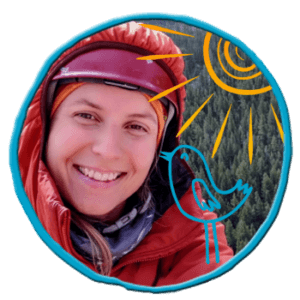 Jade Harvey-Berrill’s many hats include co-hosting the Earthy Chats podcast (with Talking with Green Teachers co-host Ian Shanahan), serving as Outreach and Events Manager with the Non-Profit Outdoor Learning Store and Take Me Outside, conducting educational programs through her company Stoked on Science, and writing for Scientific and Education publications. She studied Physical Geography with a specialization in paleoclimate reconstruction at Queen Mary University of London, UK.
Jade Harvey-Berrill’s many hats include co-hosting the Earthy Chats podcast (with Talking with Green Teachers co-host Ian Shanahan), serving as Outreach and Events Manager with the Non-Profit Outdoor Learning Store and Take Me Outside, conducting educational programs through her company Stoked on Science, and writing for Scientific and Education publications. She studied Physical Geography with a specialization in paleoclimate reconstruction at Queen Mary University of London, UK.
Episode 27: Bananas in the classroom (and other fair-trade matters)
With Zack Gross of the Canadian Fair Trade Network and Fairtrade Canada
Why are bananas such a great entry point for teaching fair trade? How can we champion fair trade in schools? What happens if you’re up against unsupportive administration? Zack Gross has been grappling with these questions for over five decades as a fair-trade activist throughout the world. To better educate the public about fair trade, Zack and co-editors Gavin Fridell and Sean McHugh produced The Fair Trade Handbook: Building a Better World, Together, published by Fernwood Publishing. Zack joined us to discuss the book and share his insights on effective fair-trade education. (And yes, a few fruit puns found their way into the conversation.)
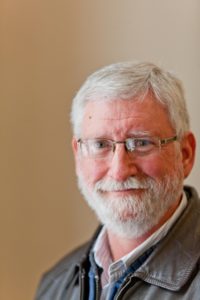 Guest (from fernwoodpublishing.ca):
Guest (from fernwoodpublishing.ca):
Zack Gross has been a Prairie-based international development activist for more than 50 years. He is a member of the Board of Fairtrade Canada and Advisory Board of the Canadian Fair Trade Network.
Episode 26: Bringing science to special ed. classrooms with PBELL
With Brittney Oden of The Diverse Classroom
Why is science so often an afterthought in special ed. classrooms? How can Problem-based Enhanced Language Learning (PBELL) be used to give 100% of your students access to 100% of your content? What does Colony Collapse Disorder (CCD) have to do with any of this? Brittney Oden teaches special ed. using PBELL. She also loves bees. This convergence of practice and passion led her to creating a popular inquiry-based lesson on bee conservation that recently evolved into the book, The Town That Brought Back the Bees. Hear Brittney’s insights and discover how bees changed her life!
Guest (adapted from https://earthyinfo.com/authors/):
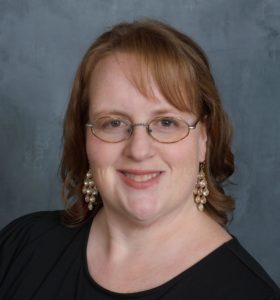 Brittney Oden is an award-winning teacher on a mission to get more science into special education classrooms. Brittney graduated from Arizona State University with a bachelor’s in elementary and special education, and a master’s in educational psychology with a focus in creative thinking from Texas A&M University. She sprinkled science into her lessons whenever she could as teacher, and now, as a teacher mentor, she advocates STEM in reading assignments. She has started writing the Tell Me More series to shine a light on both the need for reading literacy through science, and to promote awareness of environmental issues. She lives in Tempe, Arizona, USA with her husband and son.
Brittney Oden is an award-winning teacher on a mission to get more science into special education classrooms. Brittney graduated from Arizona State University with a bachelor’s in elementary and special education, and a master’s in educational psychology with a focus in creative thinking from Texas A&M University. She sprinkled science into her lessons whenever she could as teacher, and now, as a teacher mentor, she advocates STEM in reading assignments. She has started writing the Tell Me More series to shine a light on both the need for reading literacy through science, and to promote awareness of environmental issues. She lives in Tempe, Arizona, USA with her husband and son.
Episode 25: The future of energy, transportation, food, materials, and information
With Markham Hislop of Energi Media
How can we remain hopeful amid accelerating climate change and biodiversity loss? In short, it’s hard. But it’s also possible — and necessary. Though we still need immediate action on these twin crises, we have all the tools we need. In fact, many of them have been around for years. In this wide-ranging discussion with Energi Media’s Markham Hislop, hear about the seemingly utopic near future envisioned by Tony Seba of RethinkX — a future where remarkable disruptions in five foundational sectors could drastically improve our fortunes.
Guest:
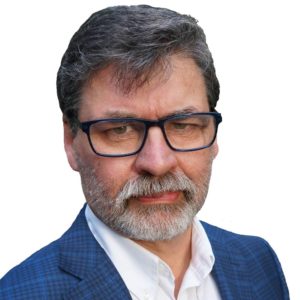 Markham Hislop (in his own words):
Markham Hislop (in his own words):
I’m a Canadian energy/climate journalist and host of the Energi Talks podcast. I also conduct video interviews with energy experts, write the Markham On Energy energy politics analysis columns, and write about the energy future. I’m frequently interviewed on Canadian radio and TV about energy transition issues.
Episode 24: Green jobs for youths roundtable, Part 2
With Kelsey Brasil, Sabrina Guzman Skotnitsky, and Brennan Strandberg-Salmon
How can post-secondary institutions better support students who are seeking meaningful work in the green economy? What can government-funded programs do to ensure that access to stepping-stone jobs is equitable? Is a youth climate corps a viable option? Where in the private sector are we seeing exciting green innovations? In Part 2 (of 2) of our roundtable with three Gen-Z youths, we answered these questions and more (while still finding time for a half-way decent tech pun).
Episode 23: Green jobs for youths roundtable, Part 1
With Kelsey Brasil, Sabrina Guzman Skotnitsky, and Brennan Strandberg-Salmon
We’re rapidly shifting toward a green economy, yet many youths feel left in the dark about how to get involved. Some think that they’ll be left out if they don’t have STEM qualifications. As the three members of our panel of passionate Gen-Z change-makers assert, we need to re-think the definition of a green job and wake up to the fact that many different skillsets are and will increasingly be needed. In Part 1 (of 2) of this in-depth roundtable discussion, our panelists also share their thoughts on how secondary and post-secondary educators and counselors can better support students who are seeking meaningful work in the environmental field.
Guests:
 Kelsey Brasil is Project Manager at Efficiency Canada. Originally from Ontario, she fell in love with Halifax studying Sustainability and Planning at Dalhousie University and has made a second home on the east coast. Prior to joining us, Kelsey managed Efficiency Nova Scotia’s community outreach program, Green Schools NS — connecting students to energy-efficiency behaviours they can adopt to protect our Earth. Energy efficiency quickly became a career focus once she saw the ways it empowers youth to take action, helps Canadians save money and afford their bills, and brings solutions to the climate crisis. There are many youths doing inspiring work in the energy-efficiency space — check out their stories here. Kelsey is a passionate change-maker with a love for meaningful connections and partnerships. Through her initiative Let’s Sprout, she designs programming to help folks reimagine the world and demand action towards social and environmental justice. In her free time, you can find Kelsey in the woods camping, rock climbing, or playing guitar and singing her favourite tunes to the ocean.
Kelsey Brasil is Project Manager at Efficiency Canada. Originally from Ontario, she fell in love with Halifax studying Sustainability and Planning at Dalhousie University and has made a second home on the east coast. Prior to joining us, Kelsey managed Efficiency Nova Scotia’s community outreach program, Green Schools NS — connecting students to energy-efficiency behaviours they can adopt to protect our Earth. Energy efficiency quickly became a career focus once she saw the ways it empowers youth to take action, helps Canadians save money and afford their bills, and brings solutions to the climate crisis. There are many youths doing inspiring work in the energy-efficiency space — check out their stories here. Kelsey is a passionate change-maker with a love for meaningful connections and partnerships. Through her initiative Let’s Sprout, she designs programming to help folks reimagine the world and demand action towards social and environmental justice. In her free time, you can find Kelsey in the woods camping, rock climbing, or playing guitar and singing her favourite tunes to the ocean.
Sabrina Guzman Skotnitsky is a climate justice advocate, researcher, and youth consultant in Vancouver on unceded Coast Salish territory. Sabrina has campaigned for fossil fuel divestment, a Canadian Green New Deal, and most recently a green recovery from COVID-19. She authored the report Build Back Better: Expanding Green Jobs for Youth Post-Pandemic, which advocates for more inclusive and diverse federal green job programs. Sabrina works as the Director of Sustainability and Impact-Driven Work at the Emerging Youth Consultancy (EYC).
Brennan Strandberg-Salmon is a third-year Bachelor of Environment student at Simon Fraser University, majoring in Resource and Environmental Management. As a youth environmental leader, he initiates efforts to improve the environment, including youth-led climate action, stream stewardship, environmental education, and other efforts. He recruits and manages volunteers, organizes and promotes events, and advises on youth engagement activities for volunteer organizations. Since 2019 he has coordinated policy and research projects for the Climate Change Branch of the British Columbia Council for International Cooperation (BCCIC). Past green jobs of his include Water Efficiency Advisor for the City of Vancouver’s Greenest City Action Plan, Climate Emergency Policy Analyst for BCCIC where he produced a climate change guide for industry associations, and Project Coordinator for Environment and Climate Change Canada to help organize the World Circular Economy Forum 2021. Brennan thrives in outdoor environments and enjoys hiking, dragon boating, water skiing, and exploring nature locally and during mravels abroad.
Transition Music by Miyagisama from Pixabay
Episode 22: Teaching about a circular economy
With Nazish Qureshi of GreenLearning
How do recycling and a circular economic model differ? What are the ecological benefits of the circular model? Does it present any financial opportunities? Where does biomimicry fit into the discussion? How can teachers engage students in meaningful learning about a circular economy? Nazish Qureshi joined us to answer these big questions. She also shed light on the exciting innovations happening right now in the realm of a circular economic model. Some of them might even be happening right in your neighborhood!
Guest (adapted from the GreenLearning website):
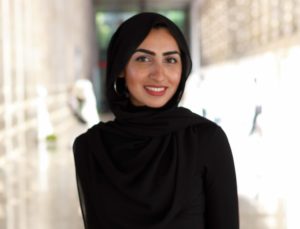 Nazish Qureshi is responsible for the development and delivery of GreenLearning’s innovative education programs, including Eco 360: Transitioning to a Circular Economy. With an MSc. in Sustainable Energy Development and a BComm. in Energy Management, she has diverse professional experience in energy, environment, and sustainability.
Nazish Qureshi is responsible for the development and delivery of GreenLearning’s innovative education programs, including Eco 360: Transitioning to a Circular Economy. With an MSc. in Sustainable Energy Development and a BComm. in Energy Management, she has diverse professional experience in energy, environment, and sustainability.
Episode 21: Indigenous perspectives in inquiry-based learning
With Haley Higdon of Natural Curiosity
How can inquiry-based learning be used in addressing heavy topics like climate change? Why is it so critical to lead with learners’ questions and theories? What steps can all educators take to engage with millennia-old Indigenous wisdom? How can Indigenous and non-Indigenous people collaborate on a path toward reconciliation? Haley Higdon, Managing Editor of Natural Curiosity 2nd Edition, joined us to unpack these questions, while also sharing her insights about braiding Indigenous teachings into learning as well as educator stories that resonate strongly in today’s world.
Guest:
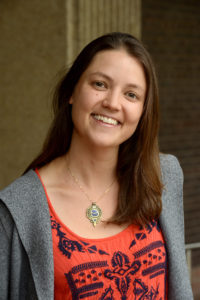 Haley Higdon (OCT) is a guest and settler on Turtle Island and is the Program Director of Natural Curiosity, Dr. Eric Jackman Institute of Child Study Laboratory School, OISE-University of Toronto. She has her BEd and MA in Child Study and Education from the Dr. Eric Jackman Institute of Child Study at UofT. She has spent the last four years working as the Managing Editor for the development and creation of Natural Curiosity 2nd Edition: The Importance of Indigenous Perspectives in Children’s Environmental Inquiry. Haley has extensive experience in supporting educators with incorporating environmental inquiry into their practice.
Haley Higdon (OCT) is a guest and settler on Turtle Island and is the Program Director of Natural Curiosity, Dr. Eric Jackman Institute of Child Study Laboratory School, OISE-University of Toronto. She has her BEd and MA in Child Study and Education from the Dr. Eric Jackman Institute of Child Study at UofT. She has spent the last four years working as the Managing Editor for the development and creation of Natural Curiosity 2nd Edition: The Importance of Indigenous Perspectives in Children’s Environmental Inquiry. Haley has extensive experience in supporting educators with incorporating environmental inquiry into their practice.
Episode 20: Mobile gaming and augmented reality outdoors
With Mary Clark of Agents of Discovery
What does the research say about using mobile apps and augmented reality (AR) to connect students to the outdoors in engaging and meaningful ways? How do these digital tools impact learners’ conservation ethic? Can they have intergenerational appeal even though the average tech generation is only three tears? What does all of this mean for the future of experiential guides and nature interpreters in parks and other green spaces? Agents of Discovery CEO Mary Clark joined us to chat about all of this and more, including Acorn Woodpeckers, Smokey Bear, Snowy Owls, and… Betty White!?!
Guest (from the Agents of Discovery website):
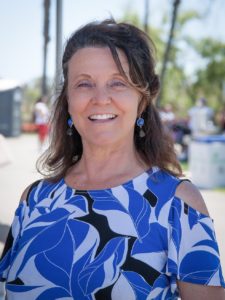 Mary Clark is the CEO of Agents of Discovery. She is a dynamic leader with a passion for creating education technologies that change the world. A visionary entrepreneur who brings a unique perspective to product development, Mary brings years of experience as a teacher and science textbook writer to her executive role. She holds a B.Sc. (Honors) and B.Ed. from the University of Alberta, as well as an M.Ed. (with a focus on education technology) from the University of British Columbia. Mary has been the recipient of numerous awards, ranging from the Louise McKinney Award for Top Student at the University of Alberta in the Faculty of Education, Edwin Parr Teacher Award for Best First Year Teacher in Alberta, and Canada’s Top 50 women in STEM.
Mary Clark is the CEO of Agents of Discovery. She is a dynamic leader with a passion for creating education technologies that change the world. A visionary entrepreneur who brings a unique perspective to product development, Mary brings years of experience as a teacher and science textbook writer to her executive role. She holds a B.Sc. (Honors) and B.Ed. from the University of Alberta, as well as an M.Ed. (with a focus on education technology) from the University of British Columbia. Mary has been the recipient of numerous awards, ranging from the Louise McKinney Award for Top Student at the University of Alberta in the Faculty of Education, Edwin Parr Teacher Award for Best First Year Teacher in Alberta, and Canada’s Top 50 women in STEM.
Episode 19: Getting students out of their comfort zones
With Laura Frost and Scott Lenhart of Project Dragonfly, Ecoteach, Ohio Certified Volunteer Naturalist program, and Boardman Glenwood Junior High
You can push students beyond their comfort zones by taking them abroad to work in a rustic biological station tucked into dense rainforest. You can also do it at your nearby creek just by implementing an inquiry-based teaching method in an outdoor setting. Laura Frost and Scott Lenhart honed their craft at Miami University’s Project Dragonfly and they apply their innovative teaching method daily with their 8th-grade students. In this layered discussion, Laura and Scott share their insights about making distant places locally relevant, pushing the limits of comfort, learning local, and engaging with community members.
Guests:
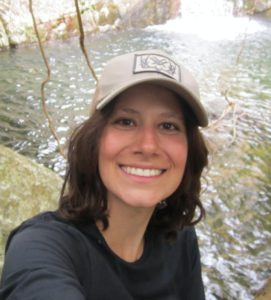
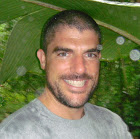 Laura Frost and Scott Lenhart have been teaching 8th-grade science together at Boardman Glenwood Junior High School in Boardman, Ohio since 2013. They both earned Master’s degrees from Miami University’s Project Dragonfly as part of the Global Field Program. Laura and Scott have also completed the Ohio Certified Volunteer Naturalist program through Ohio State University. In 2017, they began taking select students on excursions to Costa Rica with EcoTeach. They are currently developing and implementing an outdoor-based curriculum called Project STREAM in collaboration with the Environmental Collaborative of Ohio. Their goal is to connect students to their local environment and professionals in the STEM field.
Laura Frost and Scott Lenhart have been teaching 8th-grade science together at Boardman Glenwood Junior High School in Boardman, Ohio since 2013. They both earned Master’s degrees from Miami University’s Project Dragonfly as part of the Global Field Program. Laura and Scott have also completed the Ohio Certified Volunteer Naturalist program through Ohio State University. In 2017, they began taking select students on excursions to Costa Rica with EcoTeach. They are currently developing and implementing an outdoor-based curriculum called Project STREAM in collaboration with the Environmental Collaborative of Ohio. Their goal is to connect students to their local environment and professionals in the STEM field.
Episode 18: Inclusion and accessibility in the outdoors
With Karen Lai of the City of Vancouver and inclusionaccessibility.com
Does inclusion mean “everyone belongs”? Why do so many organizations aim for a segmented rather than blended population? What role does personal vulnerability play in this discussion? Inclusion and Accessibility Consultant Karen Lai joined us to talk about how to navigate the messiness and complexity of accommodating many-layered people in outdoor settings. There’s no one-size-fits all approach, but with open communication, outside-the-box thinking, and adherence to the principle that “it takes two to tango,” people can usually figure out a path forward. (Oh, and we talked about kayaking with orcas, too.)
Guest:
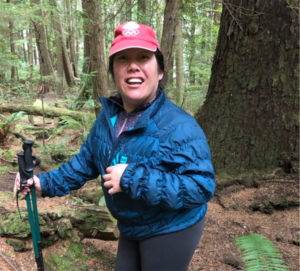 Along with being the Accessibility Planner for the City of Vancouver, Karen Lai is an Inclusion and Accessibility Consultant through which she facilitates inclusion training for companies, educators, organizations, and other special interest groups. Karen completed her undergraduate degree in outdoor recreation and her master’s in human kinetics with a focus in examining the social theories of inclusion. Karen lives with cerebral palsy and loves to get out to play in the outdoors. Learn more at https://www.inclusionaccessibility.com/.
Along with being the Accessibility Planner for the City of Vancouver, Karen Lai is an Inclusion and Accessibility Consultant through which she facilitates inclusion training for companies, educators, organizations, and other special interest groups. Karen completed her undergraduate degree in outdoor recreation and her master’s in human kinetics with a focus in examining the social theories of inclusion. Karen lives with cerebral palsy and loves to get out to play in the outdoors. Learn more at https://www.inclusionaccessibility.com/.
Episode 17: Stone Soup to prepare youths for a sustainable world
With Marianne Larned of the Stone Soup Leadership Institute
What makes the challenges of today especially daunting for young people? How can we foster in youths a sense of hope that is also grounded in reality? Why are meaningful green jobs going unfilled? What role do schools play in preparing students for a sustainable future? We discussed these questions in depth with Marianne Larned of the Stone Soup Leadership Institute, while also exploring some of the 100 stories in her latest book Stone Soup for a Sustainable World: Life-changing Stories of Young Heroes.
Guest:
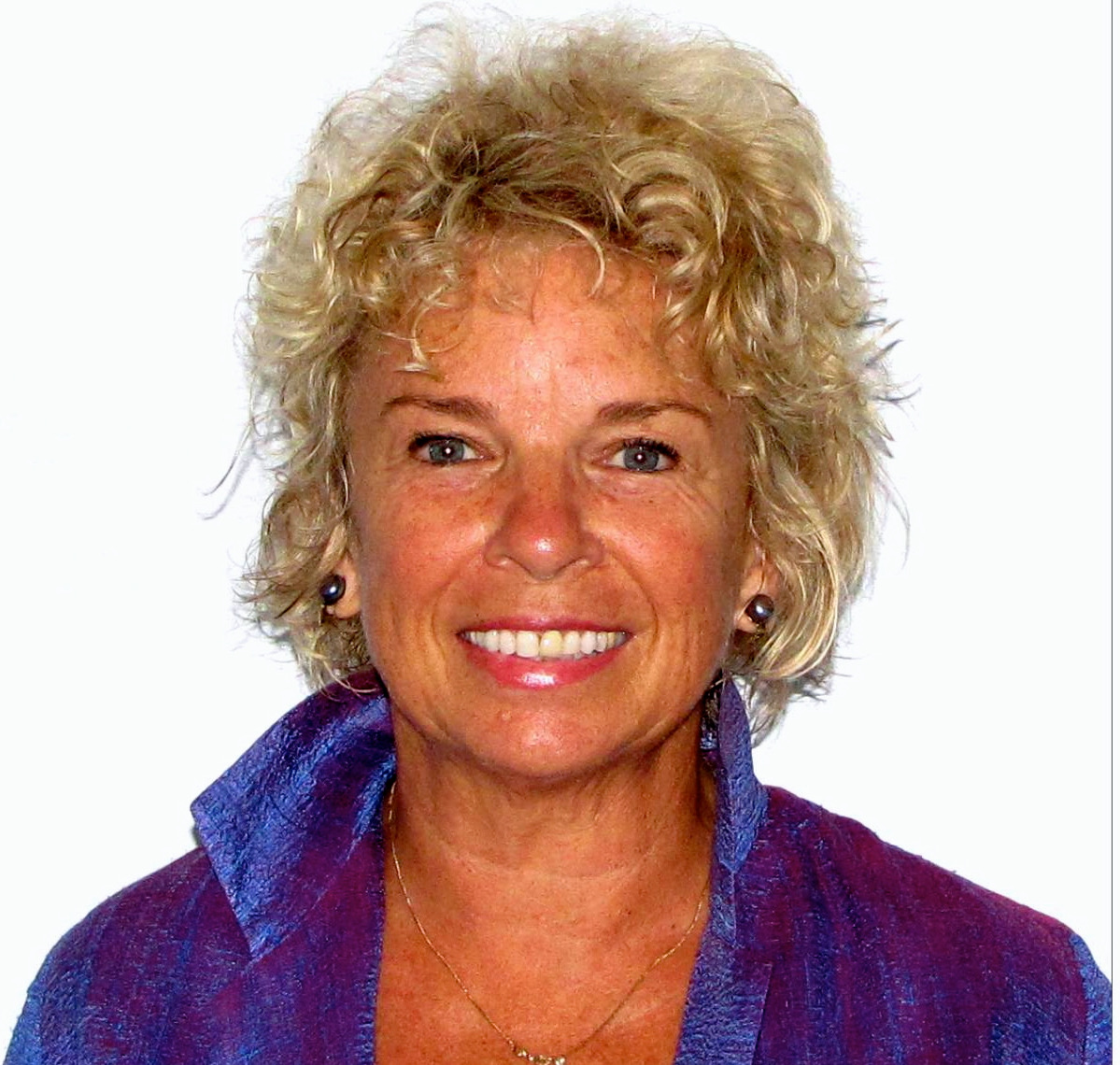
Marianne Larned is the Stone Soup Leadership Institute’s Founding Director and the best-selling author of two books titled Stone Soup for a Sustainable World, the latest being Life-changing Stories of Young Heroes, published in June 2021. From the Institute’s website, “Marianne is a sustainability champion, workforce development strategist, Design Thinking pragmatist and Corporate Social Responsibility (CSR) pioneer. She has assisted Fortune 500 companies, Chambers of Commerce, education, government, civic and community leaders to develop public-private partnerships to improve economic development, education, and health care.”
Episode 16: Using an app to connect to outdoor spaces
With Bridget Booth and Leah Higgins of the Michigan Alliance for Environmental and Outdoor Education (MAEOE) and the MiPINES app
How can we connect people to outdoor spaces in their state or province? An app might not be the first thing that comes to mind, as so many are looking for ways to decrease screen time and increase green time. But maybe a bit of screen time on a carefully constructed app like MiPINES can ultimately get more people outdoors. How do these technologies impact experiential environmental educators like park naturalists? What are some of the keys to leveraging digital tools for outdoor learning? We discussed these topics and more… and got off on a tangent about the super-picky Kirtland’s Warblers in northern Michigan.
Guests:
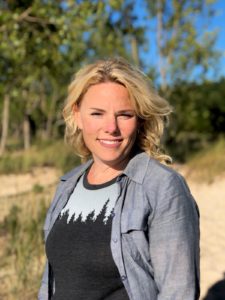 Bridget Booth is an 8th-grade science teacher at Haslett Middle School and a certified environmental educator in Michigan. She got her start in education at Woldumar Nature Center in Lansing and has been taking students outdoors to learn ever since. She is currently the president of the Michigan Alliance for Environmental and Outdoor Education (MAEOE), whose mission is to support, inspire, and empower a diverse network of individuals with a passion for environmental and outdoor learning. Bridget lives with her husband and two sons in East Lansing and will spend her summer reading, playing in the northern woods, and swimming in the Great Lakes.
Bridget Booth is an 8th-grade science teacher at Haslett Middle School and a certified environmental educator in Michigan. She got her start in education at Woldumar Nature Center in Lansing and has been taking students outdoors to learn ever since. She is currently the president of the Michigan Alliance for Environmental and Outdoor Education (MAEOE), whose mission is to support, inspire, and empower a diverse network of individuals with a passion for environmental and outdoor learning. Bridget lives with her husband and two sons in East Lansing and will spend her summer reading, playing in the northern woods, and swimming in the Great Lakes.
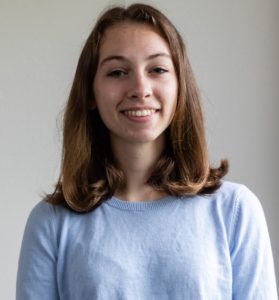 Leah Higgins is beginning a career in environmental education after graduating Summa Cum Laude from Eastern Michigan University in 2019. After graduation, she worked as a volunteer intern for the Michigan Department of Natural Resources (DNR) and is now serving as the Education Programs Developer at the DNR RAM Center via Huron Pines AmeriCorps. Leah recognizes place-based education as a valuable component of any environmental ethic, noting that the environment is not a place “out there” but is instead the place where we all live.
Leah Higgins is beginning a career in environmental education after graduating Summa Cum Laude from Eastern Michigan University in 2019. After graduation, she worked as a volunteer intern for the Michigan Department of Natural Resources (DNR) and is now serving as the Education Programs Developer at the DNR RAM Center via Huron Pines AmeriCorps. Leah recognizes place-based education as a valuable component of any environmental ethic, noting that the environment is not a place “out there” but is instead the place where we all live.
Episode 15: A climate solutions game (and Woolly Mammoths!)
With Samuel Levac-Levey from Solutions the Game and Work on Climate
We know we need to spend time in the “solutions space” when teaching about climate change, but how do we go about this? Can we leverage the popularity of gaming? Samuel Levac-Levey thinks so, so he’s created the board game Solutions, inspired by Project Drawdown. In this wide-ranging discussion, we discuss the advent of the game as well as the awesomeness of human potential, disinformation about renewable technologies like electric vehicles, extending gameplay into real-world action, the 3.5% rule, and, yes, woolly mammoths!
Guest:
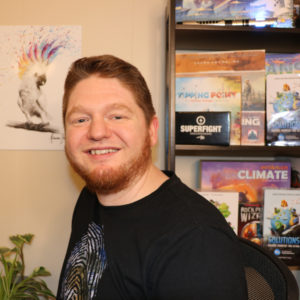 Samuel Levac-Levey is a mechanical engineer from Montréal, Canada. He is a core team member of the entrepreneurial community Work on Climate and the creator of the soon-to-be-released board game Solutions, in which players debate the relative impacts of various innovative climate solutions. The seeds of the game were planted at the Project Drawdown conference in September 2019, where Tetris creator Henk Rogers suggested turning Drawdown into a board game. (Paraphrased from https://solutionsthegame.com/about/)
Samuel Levac-Levey is a mechanical engineer from Montréal, Canada. He is a core team member of the entrepreneurial community Work on Climate and the creator of the soon-to-be-released board game Solutions, in which players debate the relative impacts of various innovative climate solutions. The seeds of the game were planted at the Project Drawdown conference in September 2019, where Tetris creator Henk Rogers suggested turning Drawdown into a board game. (Paraphrased from https://solutionsthegame.com/about/)
Transition music:
“Takeover of the 8-bit Synths” Kevin MacLeod (incompetech.com)
Licensed under Creative Commons: By Attribution 4.0 License
Episode 14: Filling gaps in climate ed. according to teens
With Gabriel Gitter-Dentz, Kevin Zhou, and Adam Rudt of Hunter College High School and the Bridging the Carbon Gap podcast
How can students make up for lost time when they haven’t learned much about climate change at school? When is the right time to introduce climate education? How should it be handled? Can gaming be an effective educational tool? These are all top-of-mind considerations for Hunter College High School seniors Gabriel Gitter-Dentz, Kevin Zhou, and Adam Rudt. This trio of teens joined us to discuss their experiences with climate education (or lack thereof), how and when to introduce climate ed., and how their podcast, Bridging the Carbon Gap, came to be. We also somehow got onto talking about a new role that George Clooney could play in a movie about the foundational climate law in the United States.
Guests (in their own words):
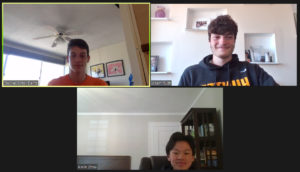 My name is Gabriel Gitter-Dentz. I am a senior at Hunter College High School and live in Manhattan. My favorite subject is Chemistry. Aside from creating the Bridging the Carbon Gap podcast, I play basketball for my school and for fun, and I am an assistant teacher at my synagogue’s religious school.
My name is Gabriel Gitter-Dentz. I am a senior at Hunter College High School and live in Manhattan. My favorite subject is Chemistry. Aside from creating the Bridging the Carbon Gap podcast, I play basketball for my school and for fun, and I am an assistant teacher at my synagogue’s religious school.
I’m Kevin Zhou, and I’m currently a senior at Hunter College High School. I enjoy studying Math and Physics. Outside of academics, I spend time on my PS4 or playing basketball.
I’m Adam Rudt. I am a senior at Hunter College High School and my favorite subjects are Biology and French. In my free time I enjoy birdwatching, playing basketball, and making podcasts.
Transition music:
“Odyssey” Kevin MacLeod (incompetech.com)
Licensed under Creative Commons: By Attribution 4.0 License
Episode 13: Talking Cli-Fi with Guy
With Guy Walton from guyonclimate.com
Have you entered the world of Cli-Fi yet? If not, join us for this lively conversation with meteorologist and children’s Cli-Fi author Guy Walton. Guy shares his insights on climate anxiety, “malevolent molecules,” misinformation versus disinformation, balancing hope and reality, and how his series’ central character Thermo came to be. Little Shop of Horrors came up in discussion, too, but you’ll have to listen to find out why…
Transition music:
“Call to Adventure” Kevin MacLeod (incompetech.com)
Licensed under Creative Commons: By Attribution 4.0 License
http://creativecommons.org/licenses/by/4.0/
Guest:
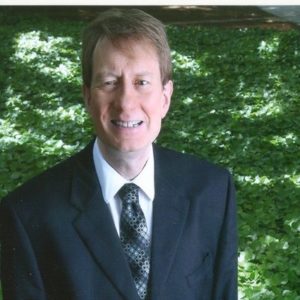 Guy Waltonis a meteorologist who is a 30-year veteran of the Weather Channel in Atlanta, Georgia. He became convinced that humankind was causing climate change shortly after Dr. James Hansen’s testimony in 1988. Guy is a native Georgian who graduated from Florida State University with a bachelor’s degree in meteorology and a minor in mathematics in 1983. He cares about what his generation will leave for the future of humanity. He hopes that his small contribution to climate science will aid others, lighting the way towards a better future for this planet. (From http://www.guyonclimate.
Guy Waltonis a meteorologist who is a 30-year veteran of the Weather Channel in Atlanta, Georgia. He became convinced that humankind was causing climate change shortly after Dr. James Hansen’s testimony in 1988. Guy is a native Georgian who graduated from Florida State University with a bachelor’s degree in meteorology and a minor in mathematics in 1983. He cares about what his generation will leave for the future of humanity. He hopes that his small contribution to climate science will aid others, lighting the way towards a better future for this planet. (From http://www.guyonclimate.
Episode 12: Puppetry, upcycling, and a puppet chat!
With Mike Harding of Applefun Puppetry and two of his puppet pals
How can puppetry be used in educational settings? What’s the right balance between entertainment and education in a puppet show? Which recycled materials make for great puppets? In this special two-part episode for Earth Week 2021, Ian chats with puppeteer Mike Harding before having an oceanside conversation with his two new puppet friends, Lobert the lobster and the Purple Pirate. There’s also talk of muppets (Kermit impression included!) and tales of puppet shows where things didn’t go exactly as planned.
Transition music:
“March of the Spoons” Kevin MacLeod (incompetech.com)
Licensed under Creative Commons: By Attribution 4.0 License
http://creativecommons.org/licenses/by/4.0/
Guests:
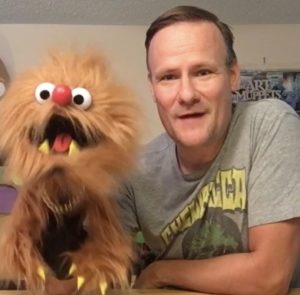 Mike Harding , Chief Puppeteer of Applefun Puppetry, has performed professionally for over 20 years. He has conducted thousands of puppet shows at libraries, schools, and birthday parties. Mike studied Improvisational Comedy at Second City, an experience that allows him to add a unique and spontaneous flavour to his shows. Applefun Puppetry Puppet Shows are characteristically interactive with a high degree of audience participation.
Mike Harding , Chief Puppeteer of Applefun Puppetry, has performed professionally for over 20 years. He has conducted thousands of puppet shows at libraries, schools, and birthday parties. Mike studied Improvisational Comedy at Second City, an experience that allows him to add a unique and spontaneous flavour to his shows. Applefun Puppetry Puppet Shows are characteristically interactive with a high degree of audience participation.
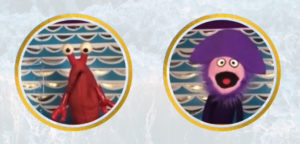 Lobert (AKA “Lob”) is a lobster — specifically, an oven-mitt lobster (and he doesn’t mind if you know that). He likes whales and sea life in general. His boss, the Purple Pirate (AKA “Captain Purple”), has a crew of four(ish) mates who accompany him on his many adventures throughout the world’s oceans. He is currently focused on finding the big purple whale, one of the most mysterious creatures of the deep!
Lobert (AKA “Lob”) is a lobster — specifically, an oven-mitt lobster (and he doesn’t mind if you know that). He likes whales and sea life in general. His boss, the Purple Pirate (AKA “Captain Purple”), has a crew of four(ish) mates who accompany him on his many adventures throughout the world’s oceans. He is currently focused on finding the big purple whale, one of the most mysterious creatures of the deep!
Episode 11: Boosting the longevity and relevance of school and botanical gardens
With Todd Beasley of the Environmental Education Association of South Carolina and University of South Carolina
Why is horticulture misunderstood in so many schools? What is the largest barrier to sustained success with school gardens? How can botanical gardens become more culturally relevant? To what extent do non-profit board composition and recruitment practices impact the cultural relevance of botanical gardens? These are some of the big questions that Todd Beasley joined us to discuss in our latest episode. More than a few plant puns found their way into the conversation, too!
Transition music:
“Garden Music” Kevin MacLeod (incompetech.com)
Licensed under Creative Commons: By Attribution 4.0 License
http://creativecommons.org/licenses/by/4.0/
Guest:
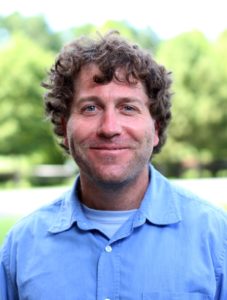 Todd Beasley, Green Teacher’s Regional Editor for South Carolina (SC), has 25 years of experience in horticulture and education. Between stops at three botanical gardens, Todd taught 5th-grade Environmental Science and continuing education Horticulture classes. Todd also served as the School Environmental Education Director at Heathwood Hall in Columbia, South Carolina, USA, where his students created a nationally recognized youth gardening program. Todd wrote the proposal that brought the American Horticultural Society’s Annual Children and Youth Gardening Symposium to Columbia, SC in 2016. Todd is currently the owner of Primitive by Design, an eco-friendly garden design firm, and is an Elementary Education professor at the University of South Carolina.
Todd Beasley, Green Teacher’s Regional Editor for South Carolina (SC), has 25 years of experience in horticulture and education. Between stops at three botanical gardens, Todd taught 5th-grade Environmental Science and continuing education Horticulture classes. Todd also served as the School Environmental Education Director at Heathwood Hall in Columbia, South Carolina, USA, where his students created a nationally recognized youth gardening program. Todd wrote the proposal that brought the American Horticultural Society’s Annual Children and Youth Gardening Symposium to Columbia, SC in 2016. Todd is currently the owner of Primitive by Design, an eco-friendly garden design firm, and is an Elementary Education professor at the University of South Carolina.
Todd’s article, Richard Headstrom — STEAMING Ahead with STEM 75 Years Ago, appeared in our spring 2021 issue of Green Teacher magazine.
Episode 10: Teaching enviro. ed. using comic books
With Louis Yuen and Charlie Kistler of Infinity Eight Productions
Making research studies on topics like climate change, microplastic pollution, and biodiversity loss relevant and interesting for children is… well… hard. How can it be done without making eco-anxiety worse? Louis Yuen, Charlie Kistler, and the team at Infinity Eight Productions have a solution: comic books! Join us for this wide-ranging discussion about everything from striking the right tone and navigating pushback to finding the “sweet spot” of anthropomorphizing. We also ask what the sun and trees would say if they could talk…
Click here to learn more about the Noella Environmental Education comic book series.
Transition music by JuliusH from Pixabay
Guests:
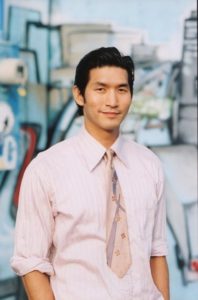 Louis Yuen is the creative mind behind Infinity Eight Productions. Before becoming interested in sustainability and climate action, Louis spent a decade as an architect on high end design projects. On a project for the Shanghai Disneyland in 2012, Louis became painfully aware of humanity’s pollution problems. That experience encouraged him to create educational materials for kids. Louis now spends his time on his dream of creating animation projects dedicated to environmental preservation and educating himself on current topics in sustainability. He believes animation has the power to enlighten, and his passion is to bring these animation project ideas to life.
Louis Yuen is the creative mind behind Infinity Eight Productions. Before becoming interested in sustainability and climate action, Louis spent a decade as an architect on high end design projects. On a project for the Shanghai Disneyland in 2012, Louis became painfully aware of humanity’s pollution problems. That experience encouraged him to create educational materials for kids. Louis now spends his time on his dream of creating animation projects dedicated to environmental preservation and educating himself on current topics in sustainability. He believes animation has the power to enlighten, and his passion is to bring these animation project ideas to life.
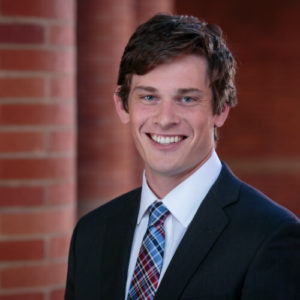
Charlie Kistler is the president and producer of Infinity Eight Productions. Charlie, a former camp counselor, ski instructor, lacrosse coach, and mentor has long been interested in teaching and coaching kids. He first became involved in climate issues while volunteering for Chabot Space and Science Center in Oakland. He holds an MBA from UCLA and a BA in Biology from Whitman College and previously worked as an infectious disease researcher and oncology consultant. In his free time, Charlie loves to ski, garden, and go hiking with his dog.
Episode 09: Facilitating children’s outdoor play
With Monica Wiedel-Lubinski of the Eastern Region Association of Forest and Nature Schools (ERAFANS)
How can educators and guardians best guide and facilitate hands-on nature play among children? It starts with being hands-off and letting kids explore, experiment, inquire — heck, even make a few mistakes — in an unstructured outdoor environment, big or small. Nature play expert Monica Wiedel-Lubinski joined us to talk about these ideas and more, including the differences between risks and hazards, the value of loose-parts play, and her favourite activities from her new book, which she co-wrote with Karen Madigan.
Guest:
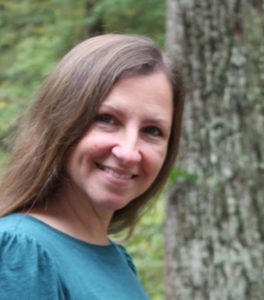 Naturalist and educator Monica Wiedel-Lubinski is the director of the Eastern Region Association of Forest and Nature Schools (ERAFANS), which builds capacity for equitable nature-based education through professional development. She co-founded the Wild Haven Forest Preschool in 2017 as well as the Notchcliff Nature Preschool at Glen Meadows Retirement Community in 2019. Monica also works as a keynote speaker and consultant for nature-based schools and natural play spaces. Her book Nature Play Workshop for Families, co-authored with Karen Madigan, was published in 2020 by Quarry Books.
Naturalist and educator Monica Wiedel-Lubinski is the director of the Eastern Region Association of Forest and Nature Schools (ERAFANS), which builds capacity for equitable nature-based education through professional development. She co-founded the Wild Haven Forest Preschool in 2017 as well as the Notchcliff Nature Preschool at Glen Meadows Retirement Community in 2019. Monica also works as a keynote speaker and consultant for nature-based schools and natural play spaces. Her book Nature Play Workshop for Families, co-authored with Karen Madigan, was published in 2020 by Quarry Books.
Episode 08: Climate- and culture-friendly ecotourism
With Roy Jantzen and Laura Choo of the School of Tourism Management, Capilano University
How do wildlife-viewing guidelines differ from one place to the next? What can ecotourism companies do to be more climate responsible? What role do consumers play in this? Roy and Laura discuss these matters as well as share their insights about equitable engagement with local Indigenous communities. Also hear some stories about whales, sea-otters, and dippers!
Guests:
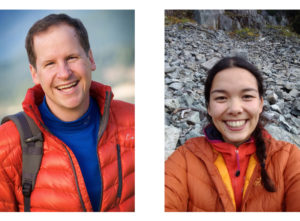 Roy Jantzen is a professor of Natural History, Ecotourism, Tourism and Climate Change, and Environmental Stewardship in the Faculty of Global and Community Studies at Capilano University. He teaches students in Tourism Management, Outdoor Recreation Management, and Global Stewardship. For over two decades, Roy has helped educate the public about the importance of biodiversity and our human place within it. Though he has a passion for local ecosystems and the species that inhabit them, he also has a strong desire to relate the environment to our lives and to larger planetary issues. Roy recently published a book entitled, Active Vancouver: A Year-Round Guide to Outdoor Recreation in the City’s Natural Environments. He also leads an ecotourism and consulting company that he began 24 years ago. Roy holds a Master of Environmental Education and Communication from Royal Roads University and asks, “shouldn’t all education be environmental education?”
Roy Jantzen is a professor of Natural History, Ecotourism, Tourism and Climate Change, and Environmental Stewardship in the Faculty of Global and Community Studies at Capilano University. He teaches students in Tourism Management, Outdoor Recreation Management, and Global Stewardship. For over two decades, Roy has helped educate the public about the importance of biodiversity and our human place within it. Though he has a passion for local ecosystems and the species that inhabit them, he also has a strong desire to relate the environment to our lives and to larger planetary issues. Roy recently published a book entitled, Active Vancouver: A Year-Round Guide to Outdoor Recreation in the City’s Natural Environments. He also leads an ecotourism and consulting company that he began 24 years ago. Roy holds a Master of Environmental Education and Communication from Royal Roads University and asks, “shouldn’t all education be environmental education?”
Laura Choo is a 4th-year student at Capilano University in the Bachelors of Tourism Management Program. She is also an alumna of the Outdoor Recreation Management Program, which she graduated from with Distinction in 2018. She is passionate about outdoor education, natural history, adventure sports, and especially environmental sustainability. She has worked as an outdoor educator, tour guide, naturalist, and tourism researcher. In December 2020, one of her qualitative research projects, which explored the success of COVID recovery strategies for tourism in the City of North Vancouver, won first place in a city-wide showcase! In 2021, along with completing her undergrad, she is looking forward to working as a research assistant for a project exploring and advocating for diversity and inclusion within tourism restart plans across Canada. If listeners want to connect with Laura with ideas for future projects or collaborations, she would be happy to network through her LinkedIn account.
Episode 07: The role of non-profits in the climate change response
With San Patten of the College of Sustainability, Dalhousie University and San Patten and Associates
How can non-profits fill in the gaps that public and private bodies can’t address in our local, national, and international response to climate change? What can we learn from how NGOs helped shift the conversation around HIV and AIDS? How does this apply to the climate crisis? San Patten addresses all this and more, while sharing one of the many impactful stories from her two decades of on-the-ground experience.
Guest:
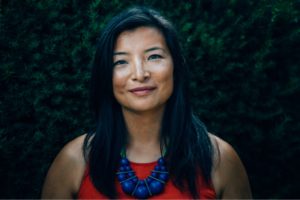 San Patten teaches at the College of Sustainability at Dalhousie University. San also teaches Social Policy (by distance) at Mount Allison University’s Department of Sociology. With a background in health promotion, specifically focusing on HIV, she brings a human health and social justice perspective to her teaching. San puts heavy emphasis on real-world learning about the role of non-profit organizations in driving social, political, economic, and environmental change. San also runs her own consulting practice, San Patten and Associates, which specializes in HIV policy development, facilitation, program evaluation, and community-based research.
San Patten teaches at the College of Sustainability at Dalhousie University. San also teaches Social Policy (by distance) at Mount Allison University’s Department of Sociology. With a background in health promotion, specifically focusing on HIV, she brings a human health and social justice perspective to her teaching. San puts heavy emphasis on real-world learning about the role of non-profit organizations in driving social, political, economic, and environmental change. San also runs her own consulting practice, San Patten and Associates, which specializes in HIV policy development, facilitation, program evaluation, and community-based research.
Episode 06: Using art and storytelling to protect marine life
With Aria Luna of Aria Luna Art
Artist Aria Luna chats about the origins of Bogo Mogo, how the story can be used to help protect oceans from plastic pollution, and why coloring books are such great tools for drawing readers into the creative process. She also tells us about a particularly unique Oregon Junco, her paintings for social justice, and the upcoming Amazonas exhibit.
Guest:
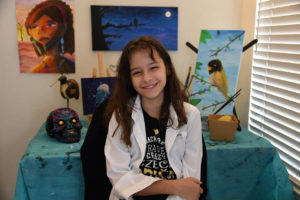 Aria Luna is one of the world’s youngest exhibiting artists. Her traveling exhibit Fusion Tide tells the story of Bogo Mogo. This terrifying plastic monster is the antagonist of the free coloring book story, The Quest to Defeat Bogo Mogo, which was written by Aria Luna’s mom, Birgitte Rasine, with coloring book page illustrations by Luba Rasine-Ortoleva. Aria Luna is a nature-lover and changemaker passionate about marine life, ocean health, and other issues impacting local and global communities.
Aria Luna is one of the world’s youngest exhibiting artists. Her traveling exhibit Fusion Tide tells the story of Bogo Mogo. This terrifying plastic monster is the antagonist of the free coloring book story, The Quest to Defeat Bogo Mogo, which was written by Aria Luna’s mom, Birgitte Rasine, with coloring book page illustrations by Luba Rasine-Ortoleva. Aria Luna is a nature-lover and changemaker passionate about marine life, ocean health, and other issues impacting local and global communities.
Episode 05: Responding to environmental racism
With Dr. Ingrid Waldron of Dalhousie University and The ENRICH Project
We sat down with Dr. Ingrid Waldron to discuss how environmental racism manifests on the ground, specifically in Mi’kmaq and African Nova Scotian communities. Dr. Waldron also discusses the importance of getting community members involved in research from the very beginning, while touching on the role educators play in responding to environmental racism.
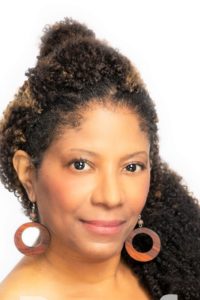 Guest:
Guest:
Dr. Ingrid Waldron is an Associate Professor in the Faculty of Health at Dalhousie University and the Director of the Environmental Noxiousness, Racial Inequities & Community Health Project (The ENRICH Project). As the Director of the ENRICH Project, Dr. Waldron has been investigating the socio-economic, political, and health effects of environmental racism in Mi’kmaq and African Nova Scotian communities. The ENRICH Project formed the basis to Dr. Waldron’s first book There’s Something in the Water: Environmental Racism in Indigenous and Black Communities, as well as the 2020 Netflix documentary There’s Something in the Water, which was co-produced by Waldron, actor Elliot Page, Ian Daniel, and Julia Sanderson.
Episode 04: A personal intersection of faith and science
With Jared Goodykoontz of Little Adventures, Big Connections
Children’s author Jared Goodykoontz joins us to chat about how his naturalist self and Christian self have gradually converged and informed each other. He also explains how scientific principles like evolution can exist in harmony with Christian faith, while touching on the importance of engaging in thoughtful dialogue with people whose views differ from yours.
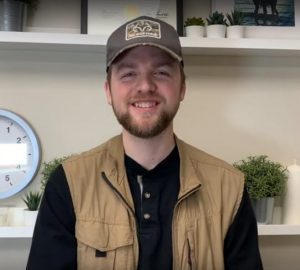
Guest:
Jared Goodykoontz loves connecting with all life around him: feathered, furred, scaled, little, big, green, human, etc. He is blessed to be able to help hundreds of families in central Ohio connect with their local nature every week through his Little Adventures, Big Connections nature program. He loves exploring the senses, tracking, bird language, and gardening with his school’s 2–6-year-olds. His main passion is fostering relationships — between him and his students, his students and their parents, and everyone with the plant and animal life around them. In addition to his weekly program, he has also written and illustrated three children’s books using bits of nature from around his own wooded property. He lives with his wife and two daughters in central Ohio.
Episode 03: Outdoor learning during a time of physical distancing
With Colin Harris of Take Me Outside
Take Me Outside founder and Executive Director Colin Harris discusses the role of outdoor learning during a time of mandated physical distancing, while discussing physical and institutional barriers to moving beyond the four walls of the classroom. He also highlights the importance of connecting with Indigenous communities to gain their insights on nature and ways to learn about it.
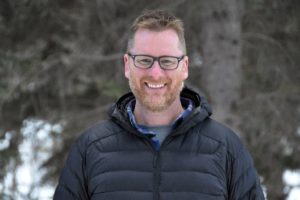 Guest:
Guest:
Colin Harris is the Founder and Executive Director of Take Me Outside. He initiated the organization by running 7,600 km across Canada over nine months, going into 80 schools across the country and engaging 20,000 students in the conversation of their time spent in front of screens compared to their time spent outside, being active and connecting to nature. He has completed a Master’s of Environmental Education and Communication and currently lives in Banff, Alberta, continuing to find ways to engage Canadian students in exploring this country’s incredible backyard.
Episode 02: The role of Social and Emotional Learning at Residential Environmental Learning Centers
With Estrella Risinger of the Association of Environmental and Outdoor Education in California
Children have the opportunity to develop self-awareness and emotional growth while staying overnight at Residential Outdoor Learning Centers (RELCs) like NatureBridge. Social and Emotional Learning (SEL) is a big part of this, and RELCs now have access to a comprehensive and research-backed new tool, Grow-outside.org. Hear the story of how it came to be and the many ways it can enhance nature-based learning at both the individual and organizational levels.
Guest:
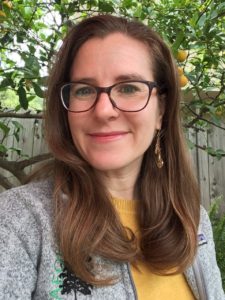
Estrella Risinger is the Executive Director of the Association for Environmental & Outdoor Education (AEOE) where she works to advance the impact of environmental and outdoor education in California. Recently serving as the National Education Manager at NatureBridge, the largest education partner of the National Park Service, Estrella helped to launch the website, Grow-outside.org, a Social and Emotional Learning Toolkit for Residential Environmental Learning Centers. A former classroom teacher and camp counsellor, Estrella has a background in both formal and informal educational settings.
Episode 01: Pivoting to virtual teaching to deliver experiential, outdoor learning
With Trevor Dunlap and Matthew Broda of the Nuhop Center for Experiential Learning in Ohio
In our first full episode, hear the remarkable story of how, in the span of 8 days, an experiential outdoor learning center made a 180-degree shift from in-person to digital teaching without abandoning their organizational goals. We also discuss the role of digital live experiences in environmental ed. now and in the future, the key to maintaining focus amid turmoil, and how llamas and alpacas can ease “Zoom fatigue”!
Guests:
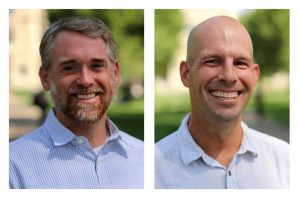 Matthew Broda is a pre-service teacher, experiential facilitator, and environmental educator based in Wooster, Ohio. As an associate professor of education with The College of Wooster, he focuses on the integration of innovative pedagogies (i.e., experiential methodologies, immersive technologies, ecological sensibilities, etc.) into pre-service teacher curricula. As a former middle school science teacher, Matthew holds an MA in Educational Administration from Ashland University and a Ph.D. in Curriculum and Instruction from Kent State University. When not teaching his students, Matthew and his wife Kristin can usually be found somewhere outside smiling.
Matthew Broda is a pre-service teacher, experiential facilitator, and environmental educator based in Wooster, Ohio. As an associate professor of education with The College of Wooster, he focuses on the integration of innovative pedagogies (i.e., experiential methodologies, immersive technologies, ecological sensibilities, etc.) into pre-service teacher curricula. As a former middle school science teacher, Matthew holds an MA in Educational Administration from Ashland University and a Ph.D. in Curriculum and Instruction from Kent State University. When not teaching his students, Matthew and his wife Kristin can usually be found somewhere outside smiling.
Trevor Dunlap is the Executive Director of The Nuhop Center for Experiential Learning, an Ohio-based non-profit that focuses on environmental and outdoor experiential education and serving children with special needs through residential camping experiences. Trevor is passionate about hands-on learning and loves fostering creative environments where people can succeed through engagement in the natural world. Trevor holds a BA in Elementary Education and Special Education from Wittenberg University. When not managing Nuhop, Trevor and his wife Sarah enjoy taking their three children on adventures, and can often be found trail-running, hiking, and working the soil in their family garden.




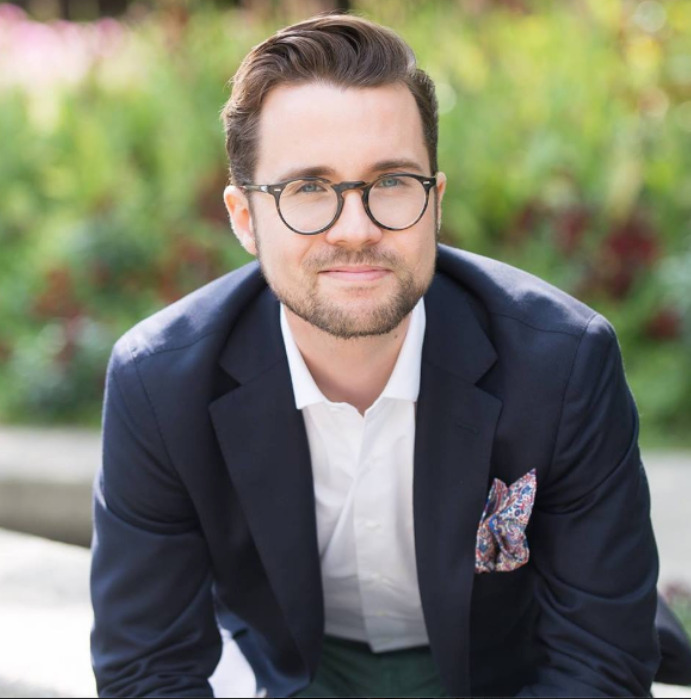 Max Fawcett is the lead columnist for Canada’s National Observer and the former editor of Alberta Oil magazine and Vancouver magazine. He worked in Alberta’s Climate Change Office from 2017–19, and lives in Calgary today with his wife and son.
Max Fawcett is the lead columnist for Canada’s National Observer and the former editor of Alberta Oil magazine and Vancouver magazine. He worked in Alberta’s Climate Change Office from 2017–19, and lives in Calgary today with his wife and son.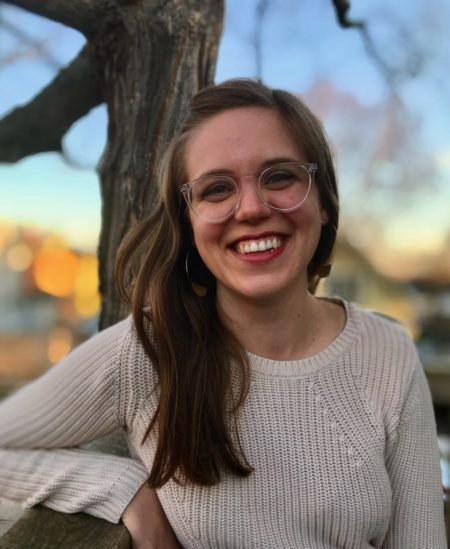 Claire Underwood is a Doctoral Student at the University of Cincinnati, where she is the Editorial Assistant for the
Claire Underwood is a Doctoral Student at the University of Cincinnati, where she is the Editorial Assistant for the 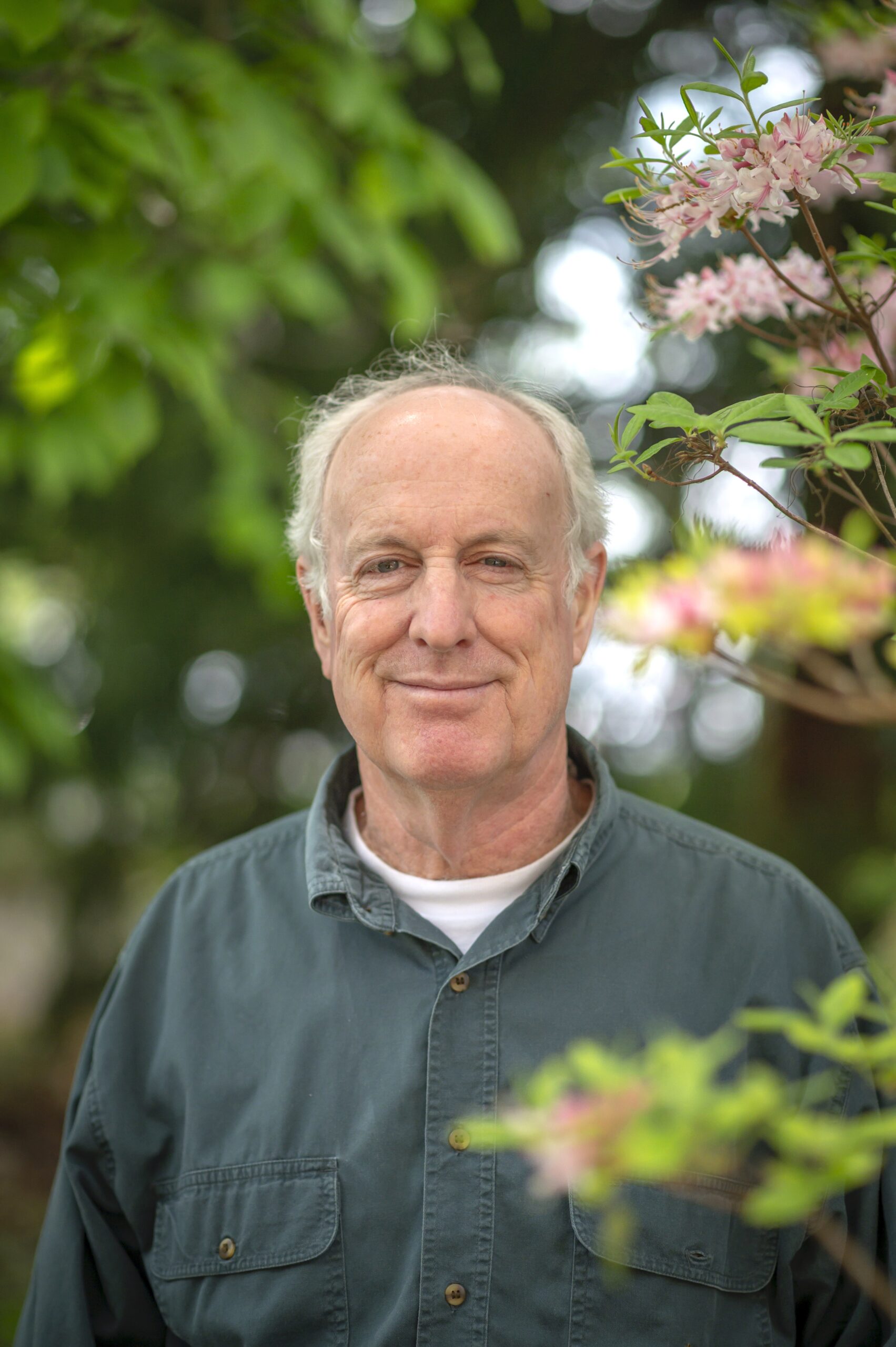 Douglas W. Tallamy is a professor in the
Douglas W. Tallamy is a professor in the 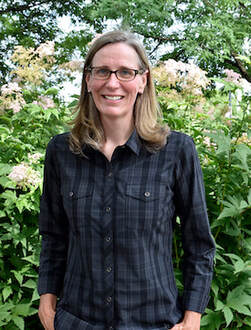 Heather Holm is a biologist, pollinator conservationist, and award-winning author. She passionately informs and educates audiences nationwide, through her writing and many presentations, about the fascinating world of native pollinators and beneficial insects, and the native plant communities that support them. Heather is the author of four books: Pollinators of Native Plants (2014), Bees (2017), Wasps (2021), and Common Native Bees of the Eastern United States (2022). Both Bees and Wasps have won multiple book awards including the American Horticultural Society Book Award (2018 and 2022 respectively). Heather’s expertise includes the interactions between native pollinators and native plants, and the natural history and biology of native bees and predatory wasps. Her work has been featured in the New York Times, Minneapolis Star Tribune, and many local publications. Heather is also an accomplished photographer, and her pollinator photos are frequently featured in print and electronic publications.
Heather Holm is a biologist, pollinator conservationist, and award-winning author. She passionately informs and educates audiences nationwide, through her writing and many presentations, about the fascinating world of native pollinators and beneficial insects, and the native plant communities that support them. Heather is the author of four books: Pollinators of Native Plants (2014), Bees (2017), Wasps (2021), and Common Native Bees of the Eastern United States (2022). Both Bees and Wasps have won multiple book awards including the American Horticultural Society Book Award (2018 and 2022 respectively). Heather’s expertise includes the interactions between native pollinators and native plants, and the natural history and biology of native bees and predatory wasps. Her work has been featured in the New York Times, Minneapolis Star Tribune, and many local publications. Heather is also an accomplished photographer, and her pollinator photos are frequently featured in print and electronic publications.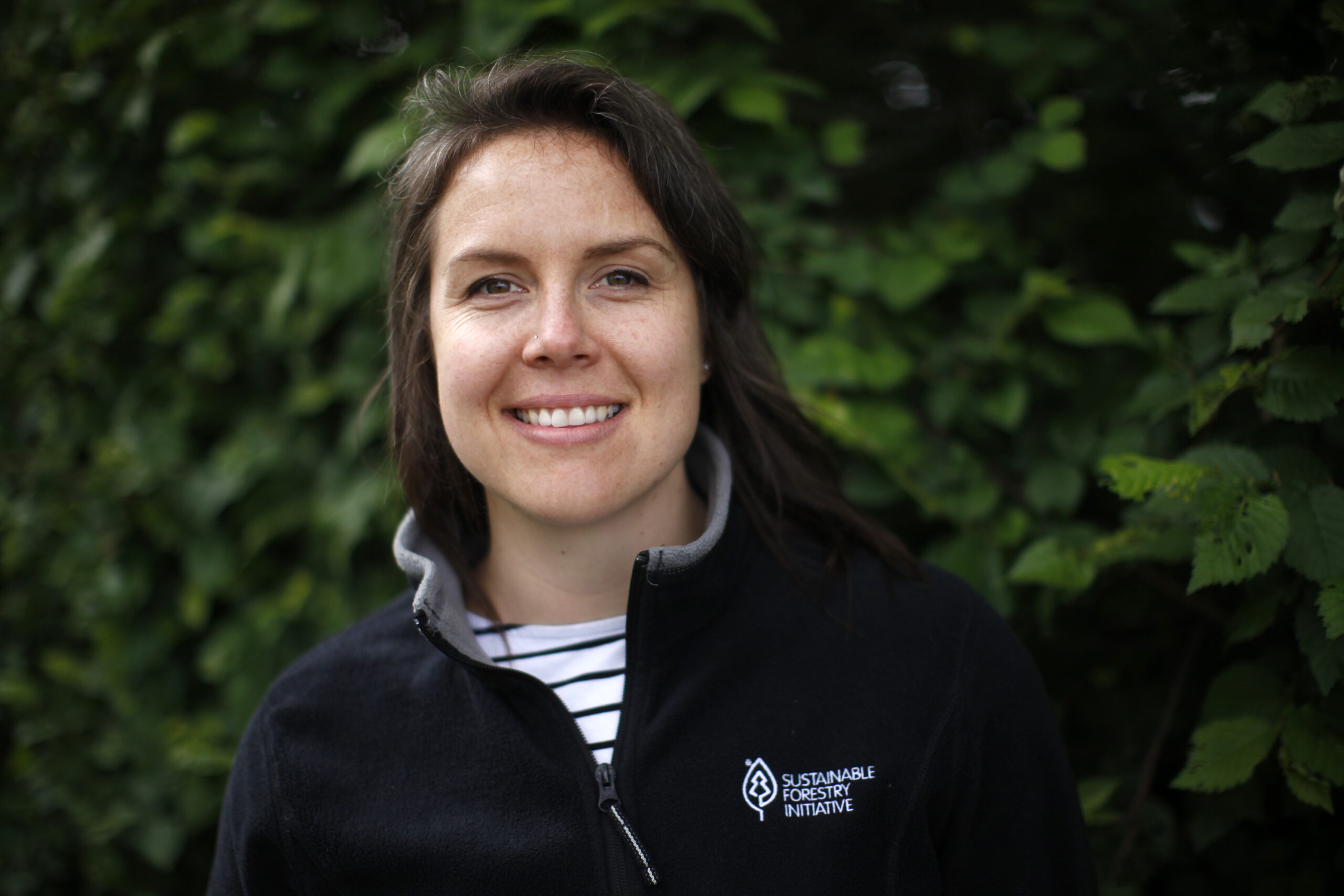
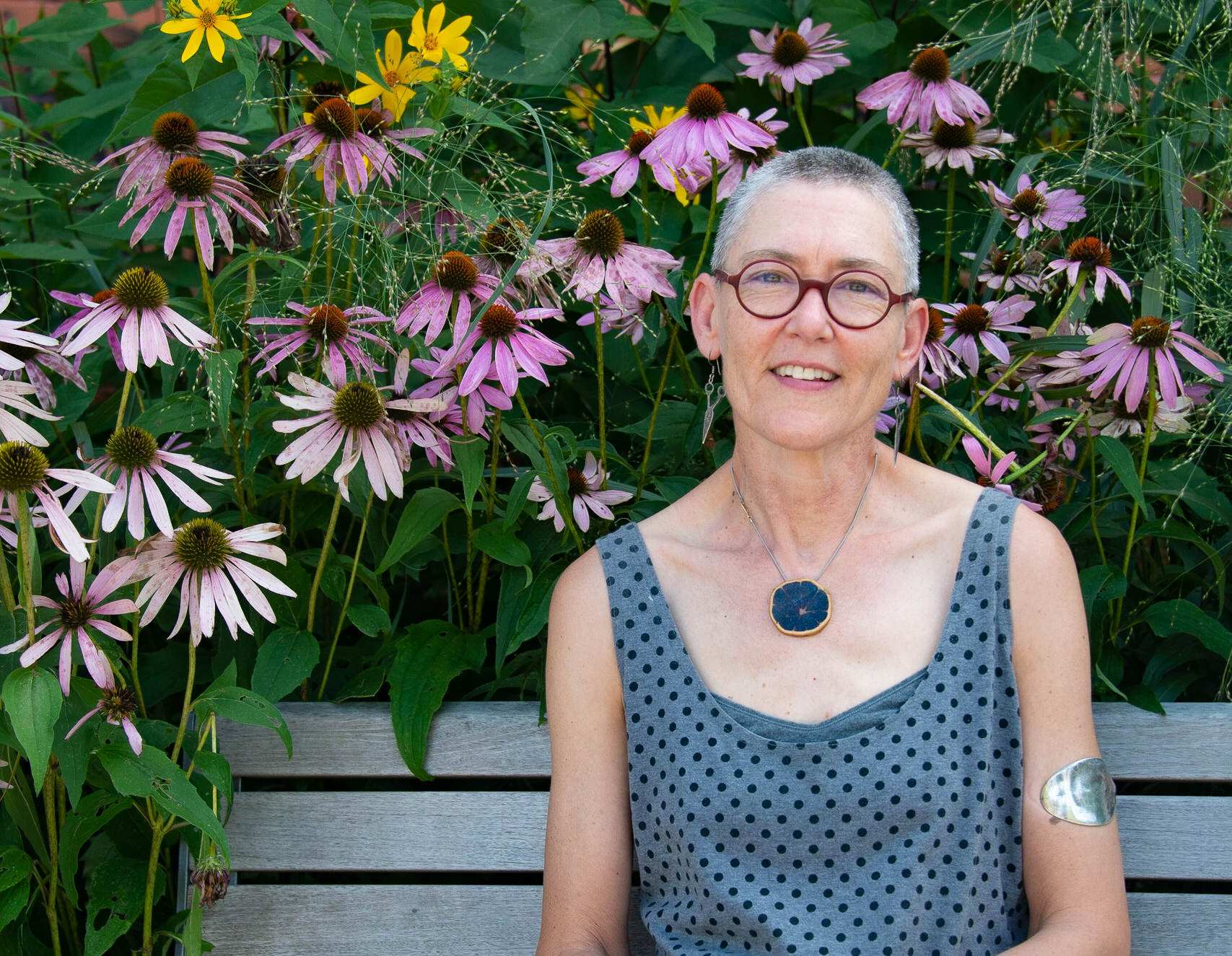 Lorraine Johnson has been writing about native plants and habitat regeneration for 30 years, in popular books such as
Lorraine Johnson has been writing about native plants and habitat regeneration for 30 years, in popular books such as 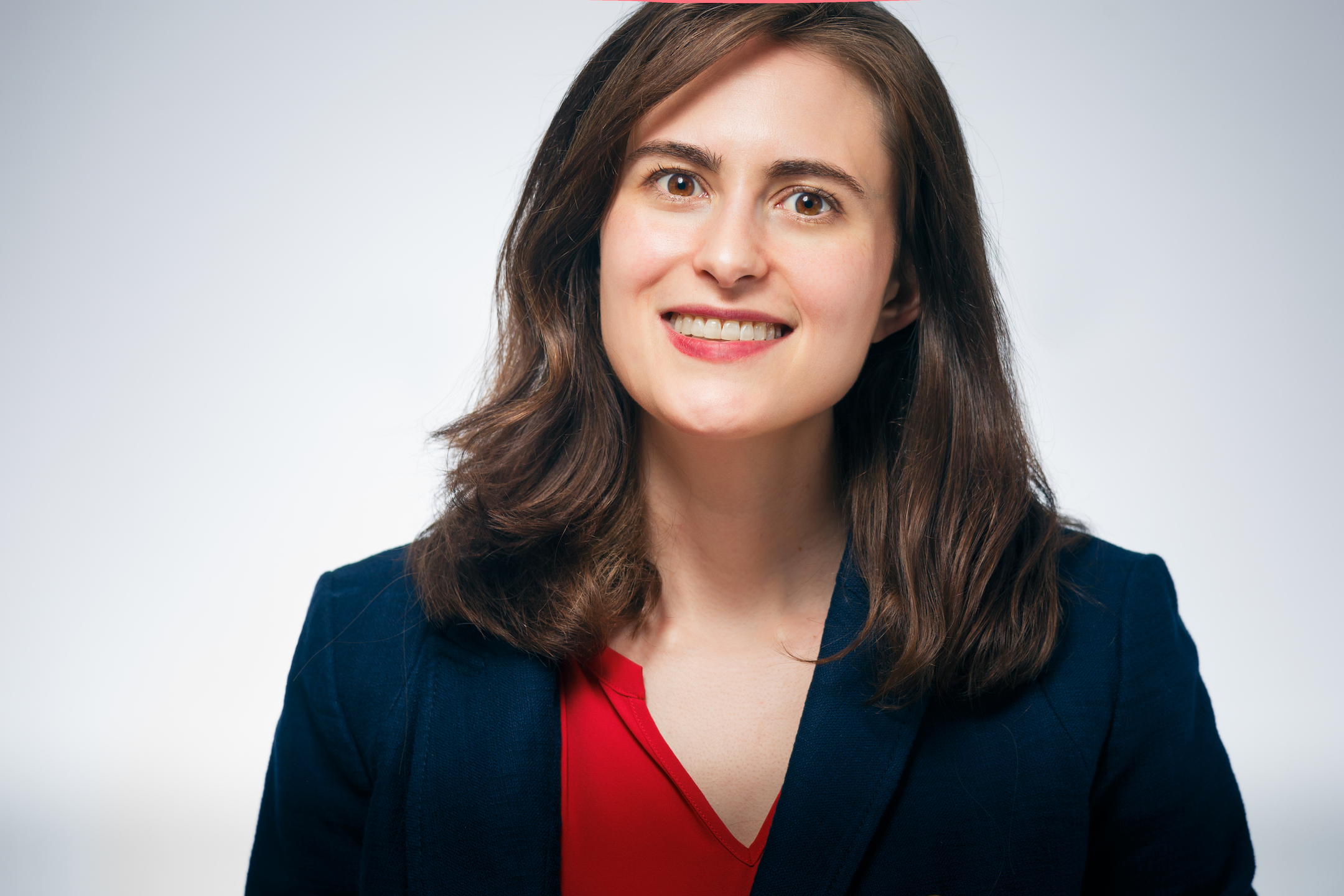 Rebecca Rolland is a lecturer at the Harvard Graduate School of Education and serves on the faculty at Harvard Medical School. She also served as an oral and written language specialist in the Neurology Department of Boston Children’s Hospital. As a nationally certified speech-language pathologist, she has worked clinically with populations ranging from early childhood through high school and has provided teacher professional development. She has an Ed.D. from the Harvard Graduate School of Education, an M.S. in Speech-Language Pathology from the MGH Institute of Health Professions, an M.A. in English from Boston University, and a B.A. in English from Yale.
Rebecca Rolland is a lecturer at the Harvard Graduate School of Education and serves on the faculty at Harvard Medical School. She also served as an oral and written language specialist in the Neurology Department of Boston Children’s Hospital. As a nationally certified speech-language pathologist, she has worked clinically with populations ranging from early childhood through high school and has provided teacher professional development. She has an Ed.D. from the Harvard Graduate School of Education, an M.S. in Speech-Language Pathology from the MGH Institute of Health Professions, an M.A. in English from Boston University, and a B.A. in English from Yale.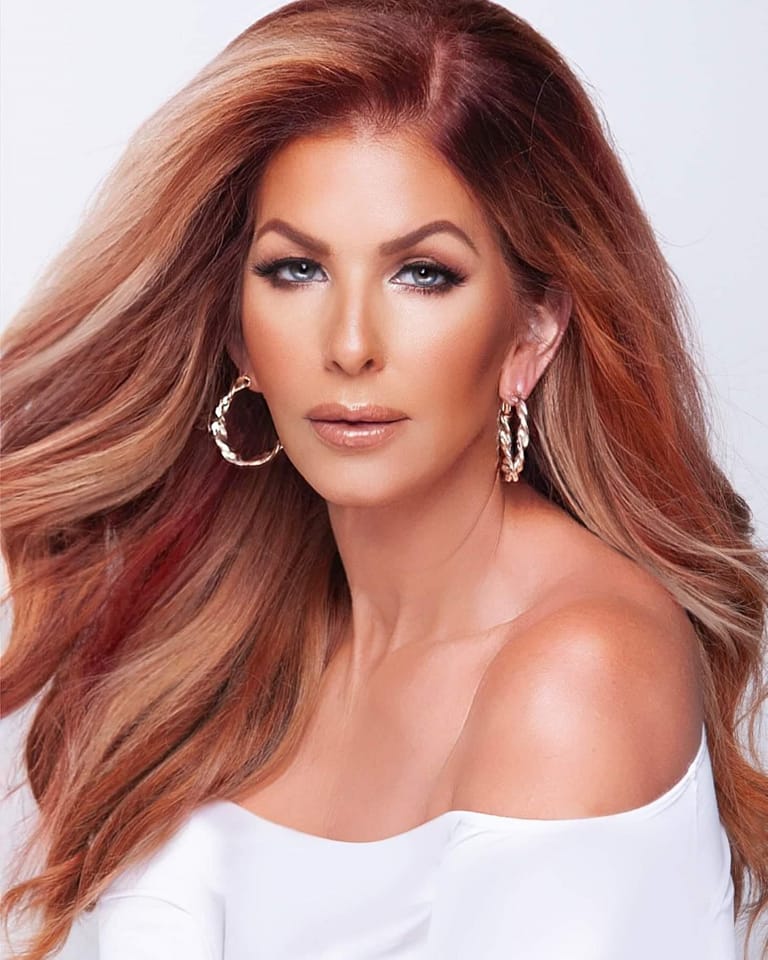 Jayne Black is a Pre-K teacher, Founder of
Jayne Black is a Pre-K teacher, Founder of 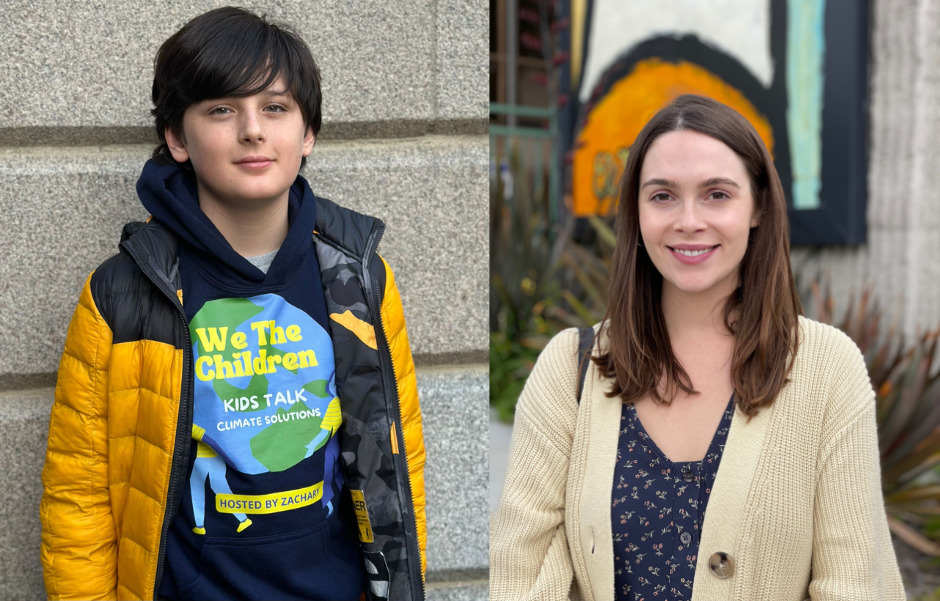 Zach Fox-Devol (in his own words): In 2020, my teacher suggested that we write a podcast script. I began writing and narrating the podcast called Rule of The Bark. Funny interviews and helpful tips are shared. In December 2021 I started We The Children, the podcast where kids talk climate change! In each episode, we meet climate warriors who are working to protect our planet. We have wacky weather reports, play fun trivia games, and feature an Action Step of the week. I have a dog named Ewok, a cat named Pax, and two moms. When I’m not working on podcasts, you can find me working on magic tricks, chess, and my Rubik’s cube.
Zach Fox-Devol (in his own words): In 2020, my teacher suggested that we write a podcast script. I began writing and narrating the podcast called Rule of The Bark. Funny interviews and helpful tips are shared. In December 2021 I started We The Children, the podcast where kids talk climate change! In each episode, we meet climate warriors who are working to protect our planet. We have wacky weather reports, play fun trivia games, and feature an Action Step of the week. I have a dog named Ewok, a cat named Pax, and two moms. When I’m not working on podcasts, you can find me working on magic tricks, chess, and my Rubik’s cube.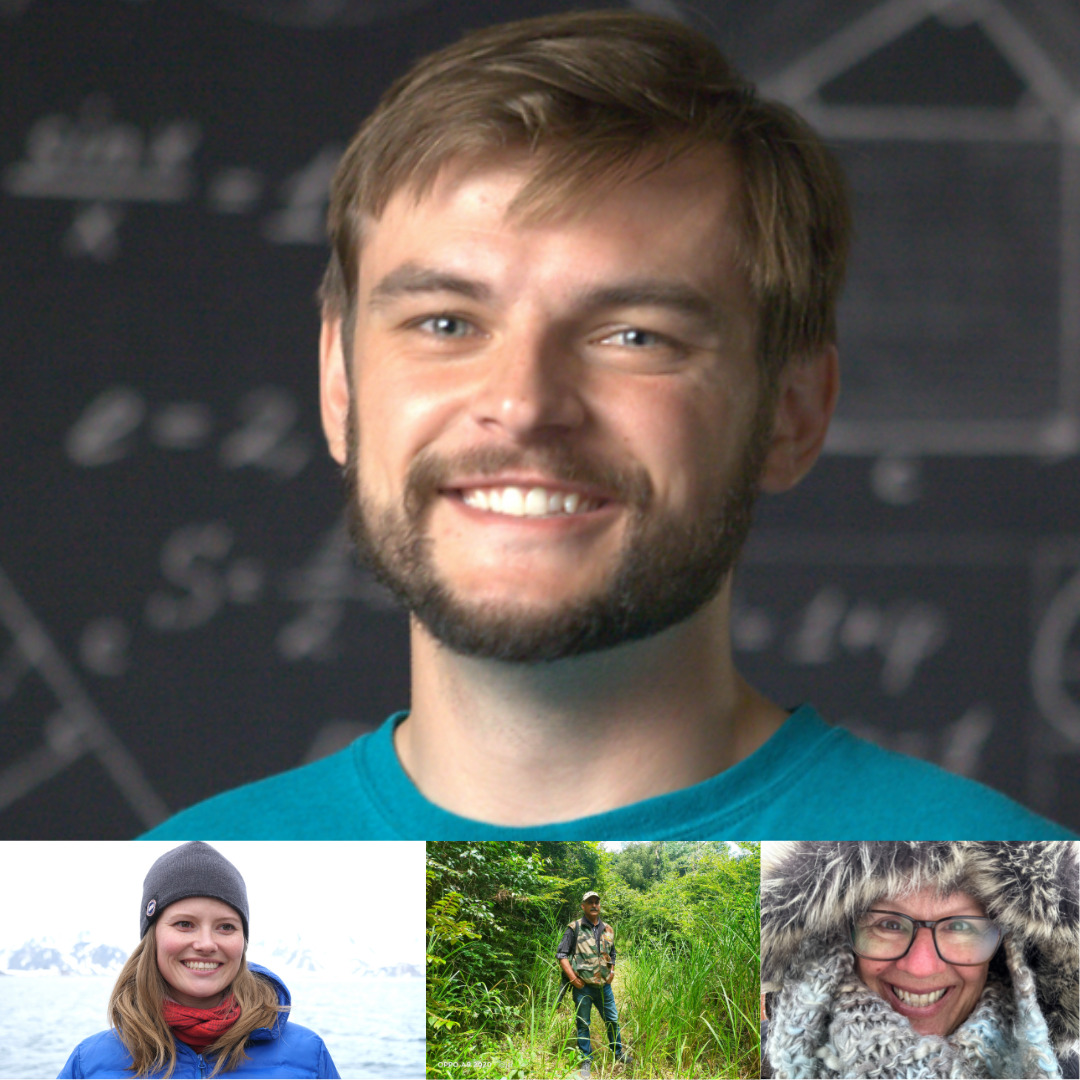 Jesse Hildebrand is the VP of Education at non-profit
Jesse Hildebrand is the VP of Education at non-profit 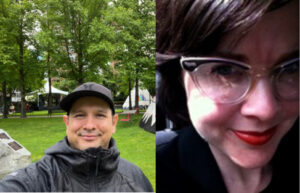 Chad Carpenter (Lheidli T’enneh), resides on the traditional unceded territory of the xwməθkwəy̓ əm (Musqueam), Sḵwx̱ wú7mesh (Squamish), and Sel̓ íl̓ witulh (Tsleil-Waututh) Nations. Chad is an Indigenous Education Enhancement Worker in both elementary and secondary school settings. He supports Indigenous students and classroom communities to continue our learning journeys toward Truth & Reconciliation and to and learn, acknowledge, and honour our beautiful and diverse Indigenous cultures.
Chad Carpenter (Lheidli T’enneh), resides on the traditional unceded territory of the xwməθkwəy̓ əm (Musqueam), Sḵwx̱ wú7mesh (Squamish), and Sel̓ íl̓ witulh (Tsleil-Waututh) Nations. Chad is an Indigenous Education Enhancement Worker in both elementary and secondary school settings. He supports Indigenous students and classroom communities to continue our learning journeys toward Truth & Reconciliation and to and learn, acknowledge, and honour our beautiful and diverse Indigenous cultures.